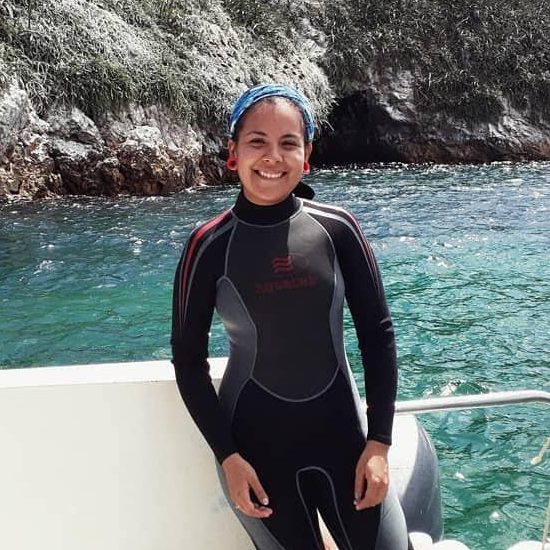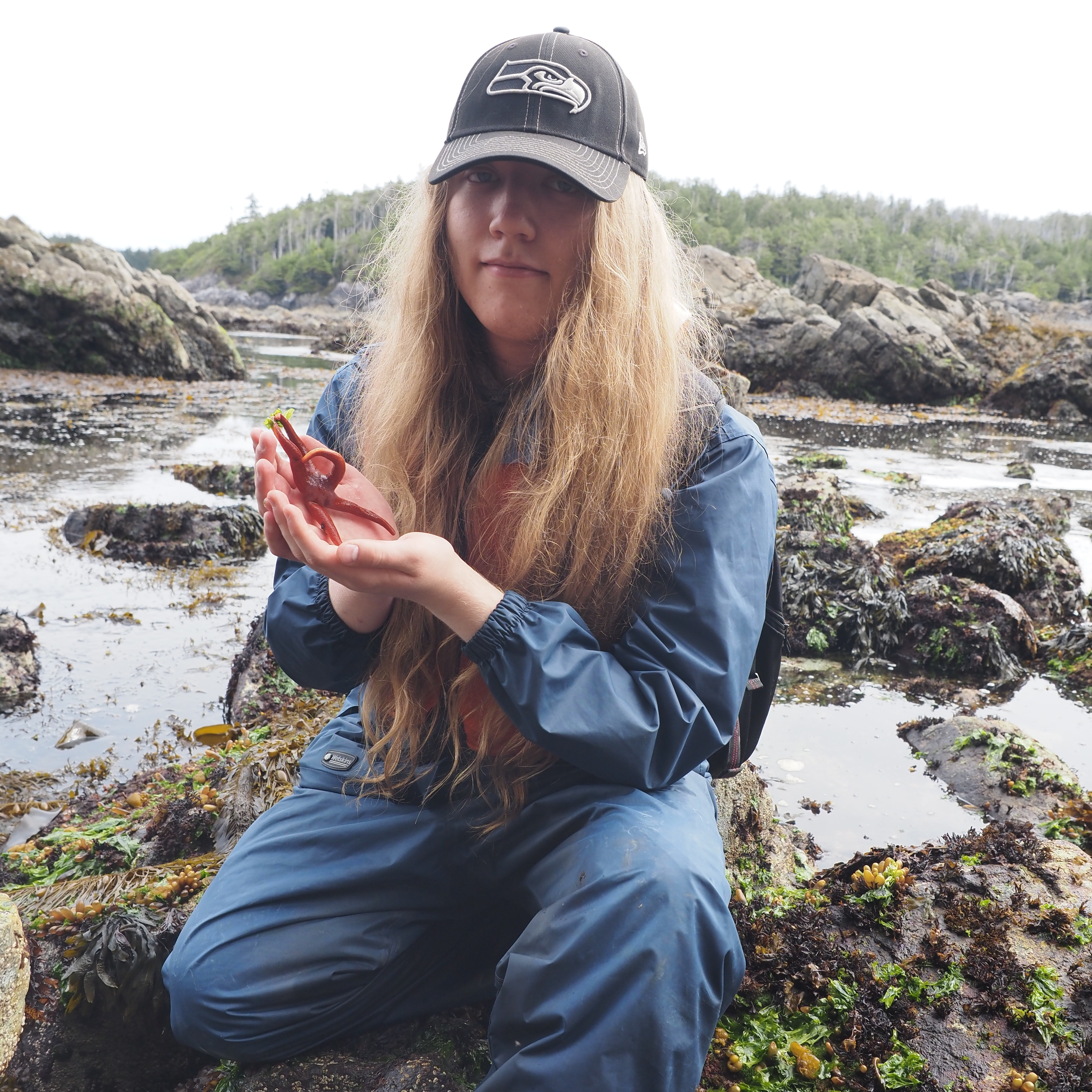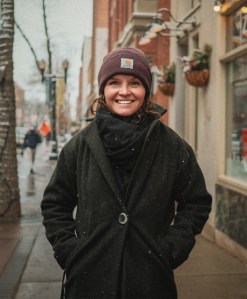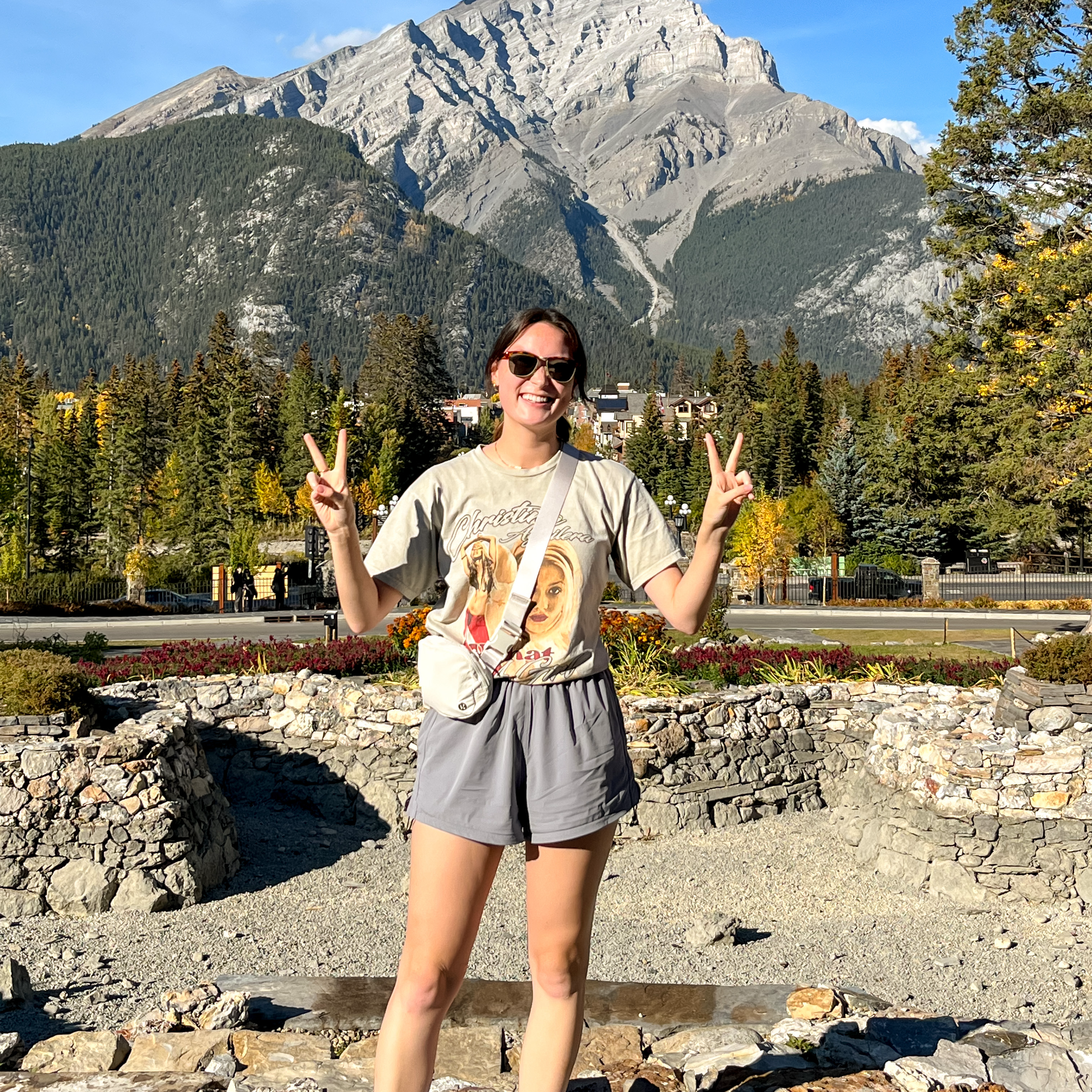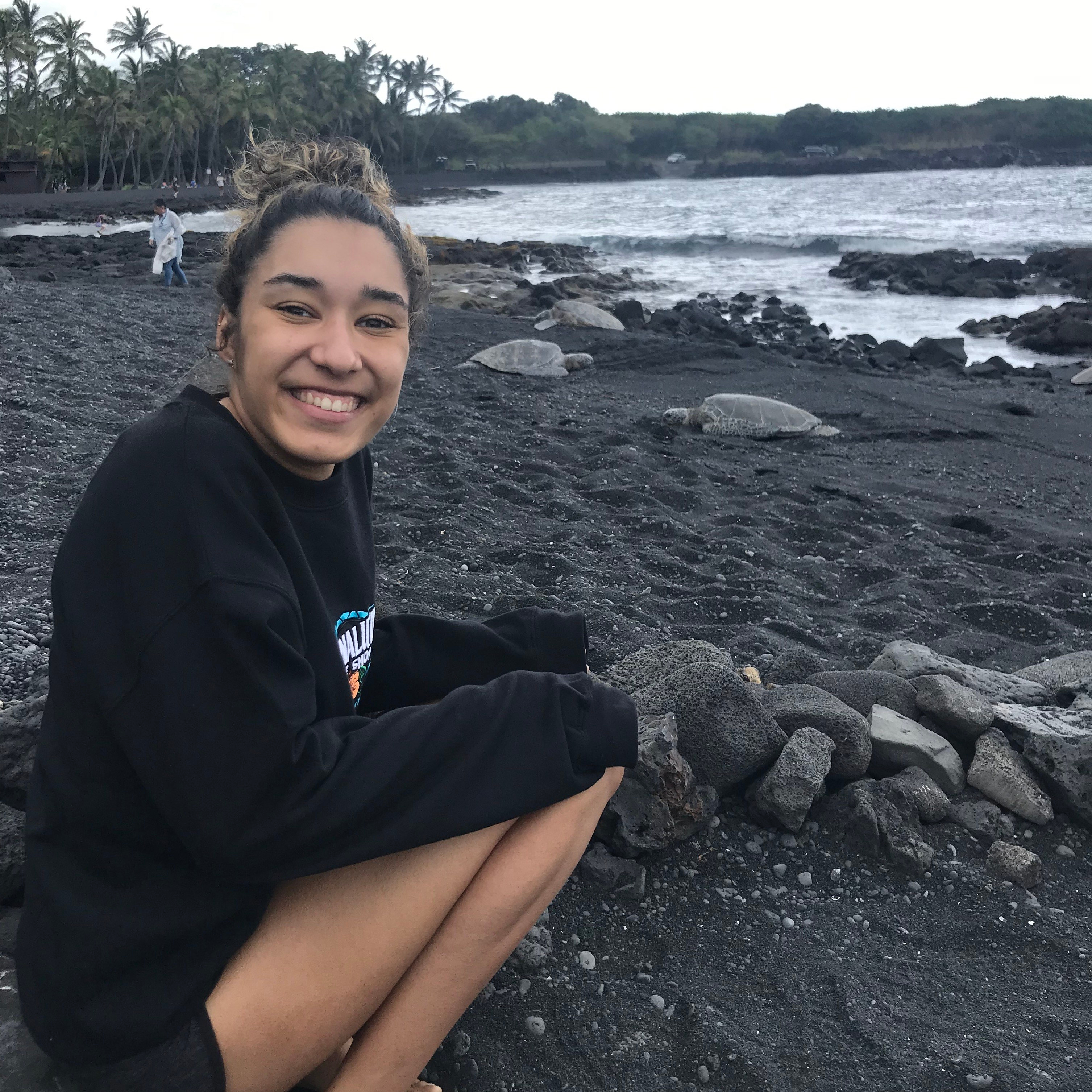Green Lab
Aquatic global change ecology and conservation
People
Welcome! Our group’s research is guided by our mission and values. Please visit the Join Us page to learn more about opportunities to join our team at the University of Alberta.
Stephanie Green (PI)
Professor & Canada Research Chair, Aquatic Global Change Ecology & Conservation
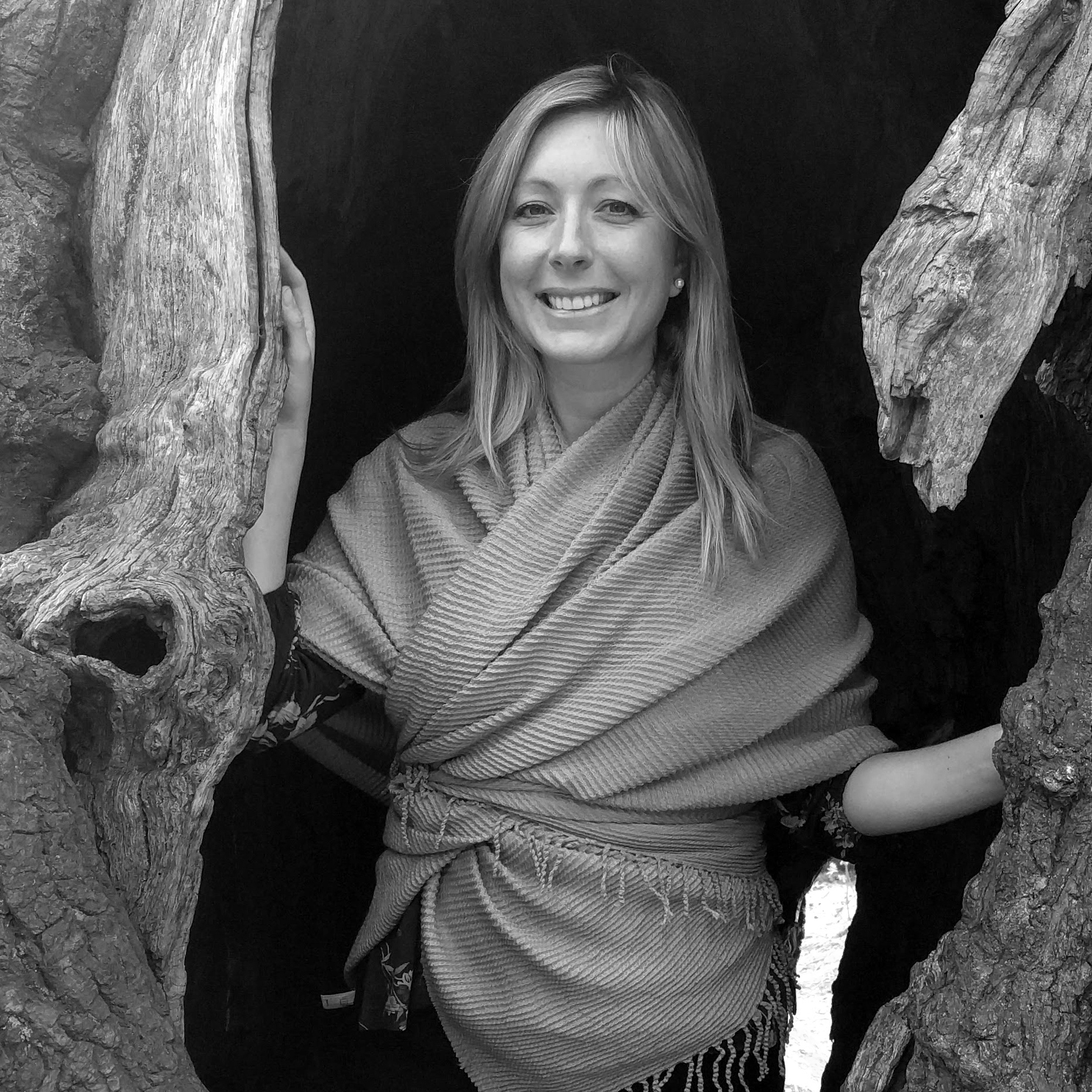 (she/her)
(she/her)
I study the causes and consequences of biodiversity change in aquatic ecosystems, with the goal of developing science-based tools to inform conservation and restoration decision-making under global change. As a scientist, I relish the opportunity to spans spaces: developing projects that bridge concepts and scales of investigation, and fostering relationships between people as they work to affect change. As a result, my interests are broad, ranging from simulation models of predator-prey interactions and food webs, to experiments investigating community assembly and resilience, to coupled social-ecological modeling examining behaviour change. The common theme across my work is advancing ecological theory in service of society. Prior to joining the University of Alberta, I was a Banting Fellow at the Center for Ocean Solutions at Stanford University and a David H. Smith Conservation Research Fellow at Oregon State University. I currently serve as an Associate Editor for the journals Conservation Letters and npj Ocean Sustainability.
Google Scholar homepage ResearchGate homepage
_
Research Associates and Postdoctoral Fellows
Miram Gleiber
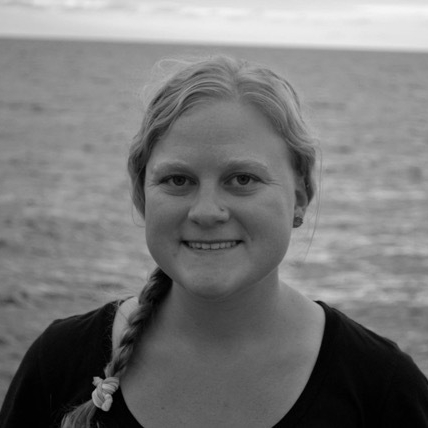 (she/her)
(she/her)
I am a biological oceanographer and plankton/larval fish ecologist interested in marine food web interactions and how they are influenced by environmental variability. I am working with the Green Lab on a project investigating the role of prey traits for marine food web interactions to better understand the effects of climate change on the distribution of Albacore tuna in the Eastern Pacific. I earned my Ph.D (2020) working with Su Sponaugle at Oregon State University, studying the importance of planktonic prey availability and fine-scale distributions for larval tuna and reef fish success in the Florida Current. Prior to this I worked with Dr. Deborah Steinberg studying long-term changes in zooplankton communities in the scope of rapid climate change in the western Antarctic Peninsula during my B.Sc. (2010) and M.Sc. (2014) at The College of William and Mary/Virginia Institute of Marine Science.
Research Gate Homepage Google Scholar Homepage
PhD Students
Julia Briand
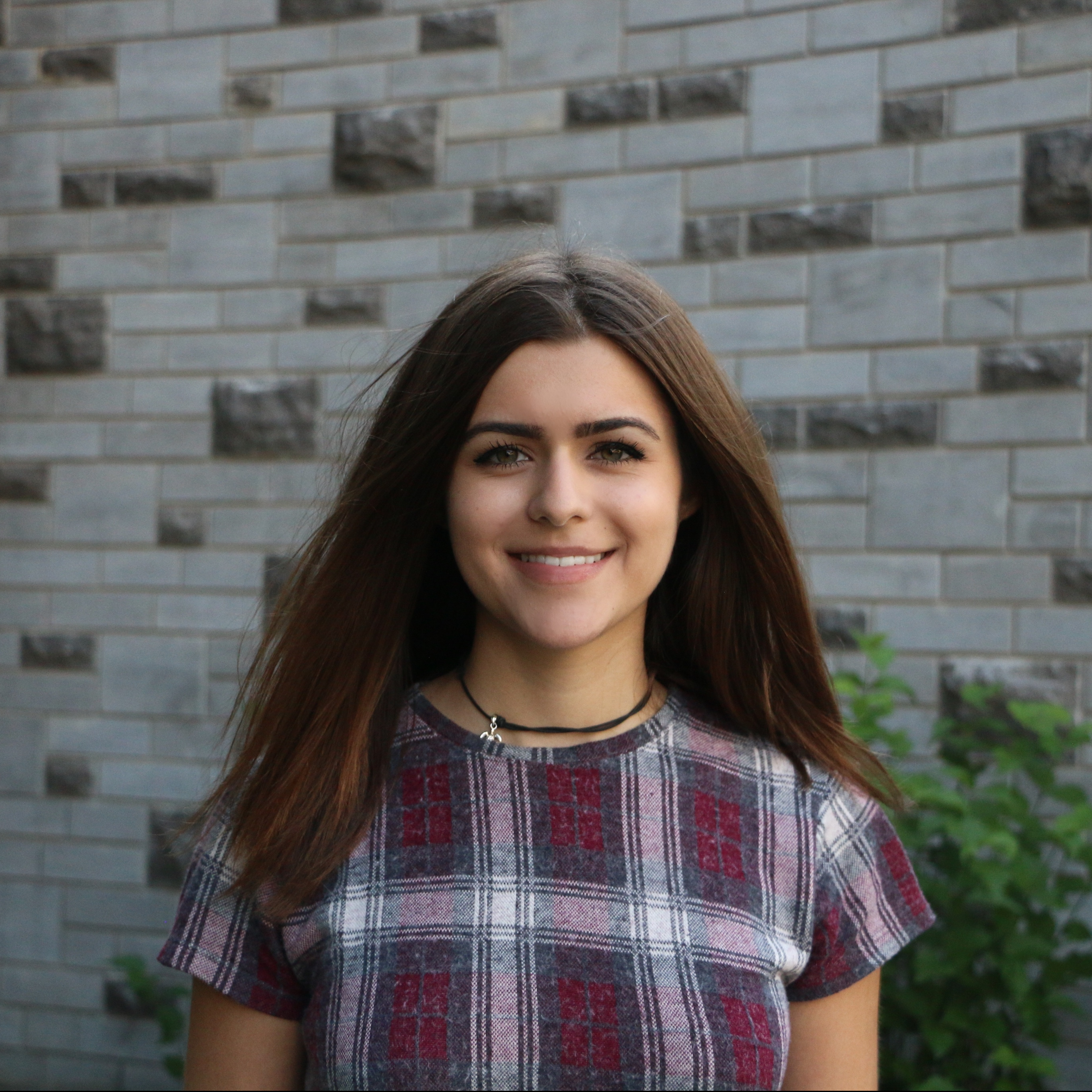 (she/her)
(she/her)
I am interested in the functional ecology of coral reef ecosystems under climate change and other anthropogenic stressors. My PhD research focuses on evaluating where and how restoration of reef function can succeed under the multi-scale impacts of stressors across heterogenous coastal habitats. My work aims to equip managers and practitioners with the information needed to design restoration projects that support reef functioning and resilience. Prior to beginning my PhD, I completed a MSc degree jointly at McGill University and the Smithsonian Tropical Research Institute (STRI) under the co-supervision of Dr. Jennifer Sunday and Dr. Hector Guzman. My Masters research focused on assessing spatio-temporal patterns in coral reef composition and function across an environmental gradient in the Caribbean. When I am not conducting research, I enjoy pursuing projects related to science education and outreach. I am currently a member of the International Coral Reef Society (ICRS) Student & Early Career Chapter.
Caitlin Hall
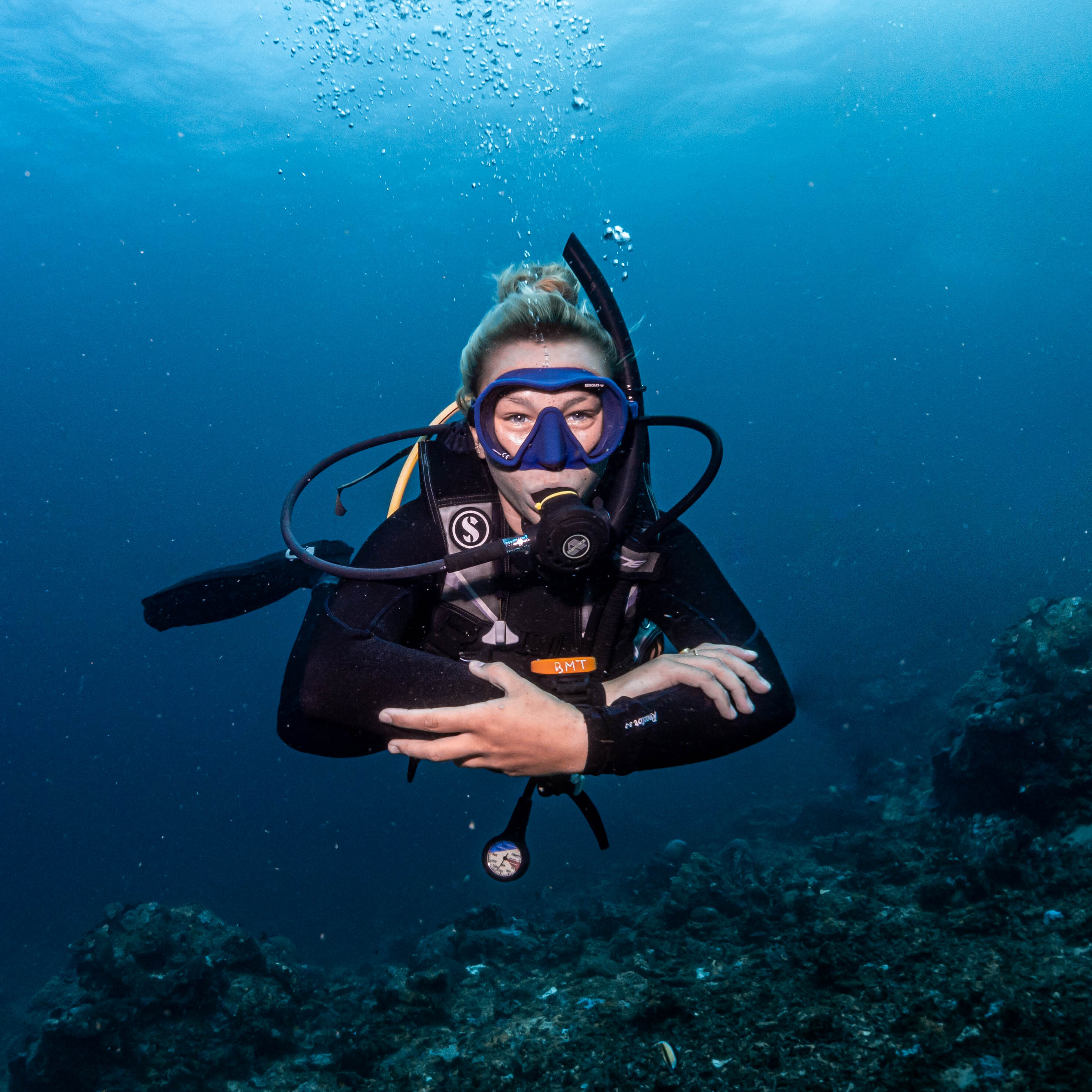 (she/her)
(she/her)
My main research interests lie in investigating the dynamics of functional ecology in coral reef systems and how broad-spectrum metrics may be used to enhance reef restoration planning and monitoring efforts. I am passionate about the use of environmental conservation as a tool to foster positive social change. As such, through my work I aim to focus on the development of accessible tools and practices which may be utilised in varied contexts to facilitate ecological recovery in local reef systems. Prior to starting my PhD, I completed an MSc degree at the University of Sussex. My research focused on investigating the functional ecology of a kelp forest ecosystem in a transient recovery phase following the cessation of long-term anthropogenic disturbance. When not conducting research, I enjoy exploring the great outdoors and spending as much time underwater as possible!
Milène Weibe
Co-supervised with Dr. Kyle Artelle, Heiltsuk Integrated Resource Management Department
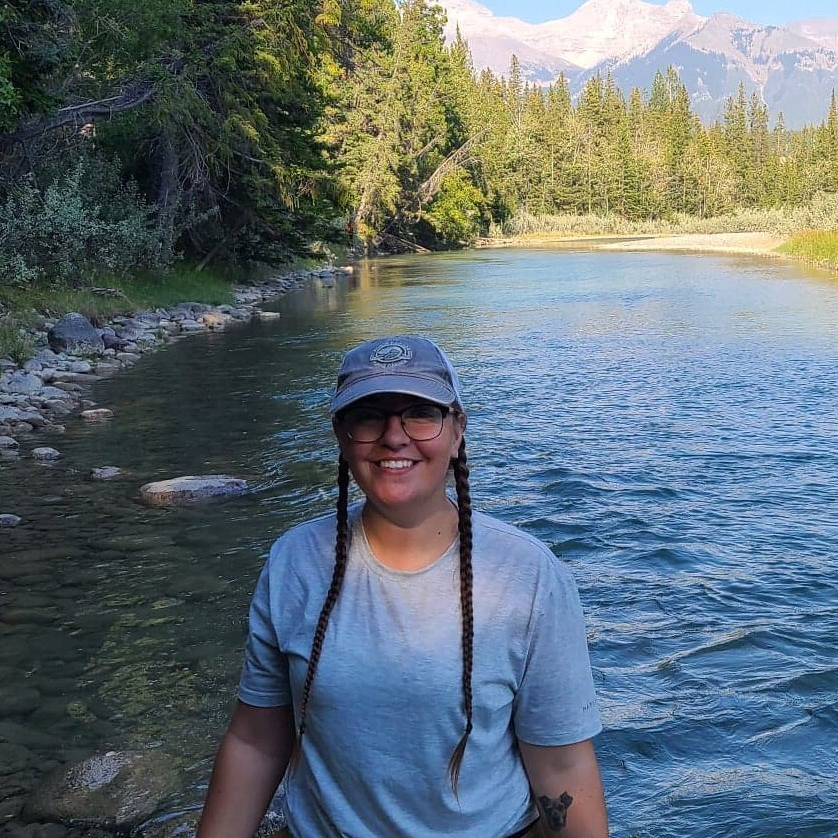 (she/her/they/them)
(she/her/they/them)
My research focuses on the invasion ecology of European green crabs (Carcinus maenas). In particular, I am evaluating management strategies that aim to limit their negative effects on intertidal communities within the traditional territory of the Haíɫzaqv Nation on the central coast of British Columbia in collaboration with the Heiltsuk Integrated Resource Management Department. Previously I gained experience with invasive species with Parks Canada, working to stop the spread of zebra mussels (Dreissena polymorpha) in Manitoba. My honours thesis at the University of Manitoba focused on determining if proximate body condition could be used as a predictor for fecundity in sea lamprey (Petromyzon marinus) within the Great Lakes. I am passionate about conservation and wildlife management, making science accessible, the outdoors, and dogs.
Isla Turcke
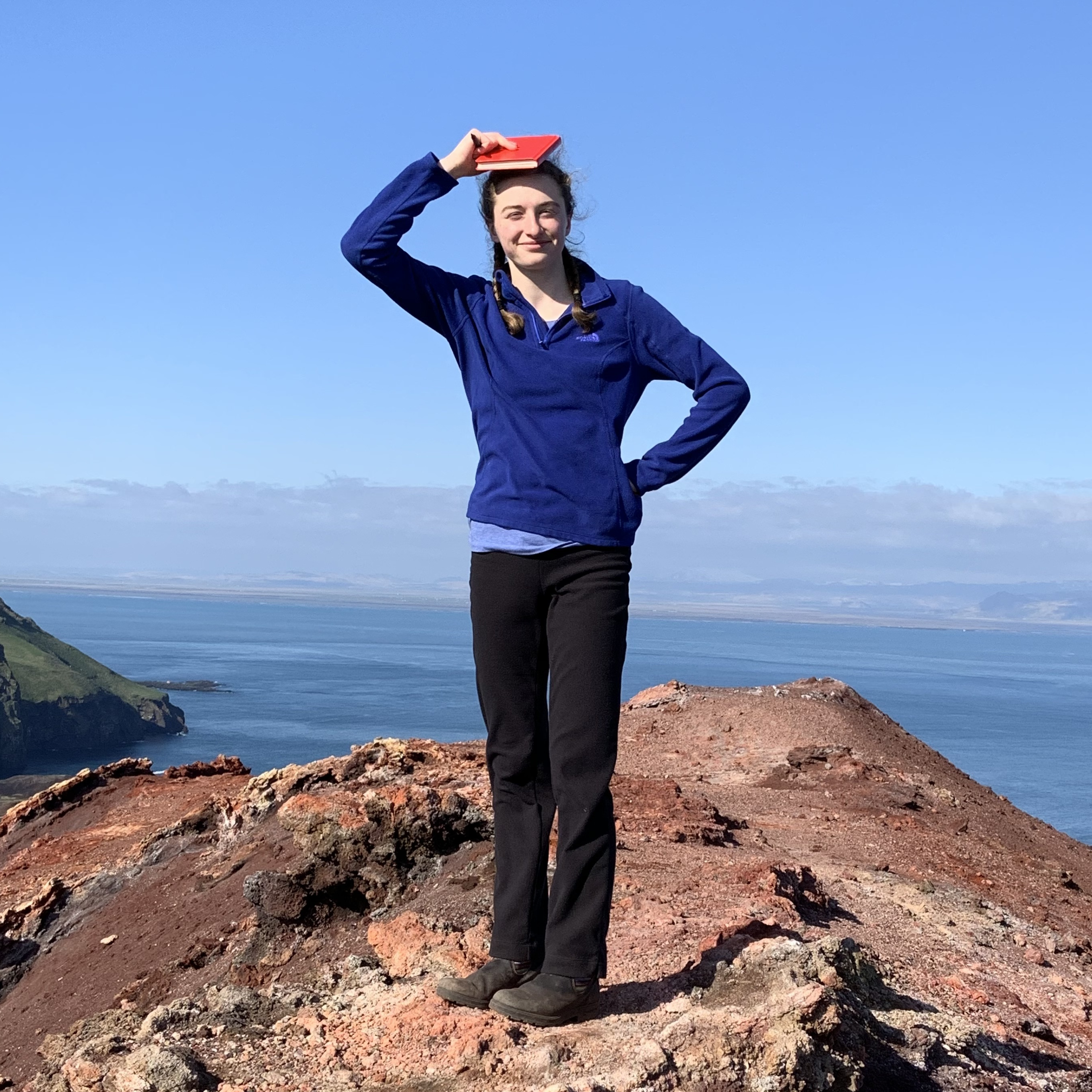 (she/her)
(she/her)
I study how functional connectivity modeling can inform restoration initiatives on coral reefs in the Florida Keys. Currently, I am looking at the spatial distribution of blue, midnight, and rainbow parrotfish, and using this data to model how these species are moving across the seascape. Before joining the Green Lab I obtained my BSc (Honours) in Integrated Science from McMaster University, with a major in physics and a minor in mathematics. This program taught me the value of interdisciplinary collaboration and effective science communication. I am excited to be beginning my journey in this field, as I have been passionate about the preservation of wildlife and their habitats since I was very young. Outside of school I like to swim, sail, bike, ski, coach gymnastics, or curl up with a good book!
MSc Students
Kiara Kattler
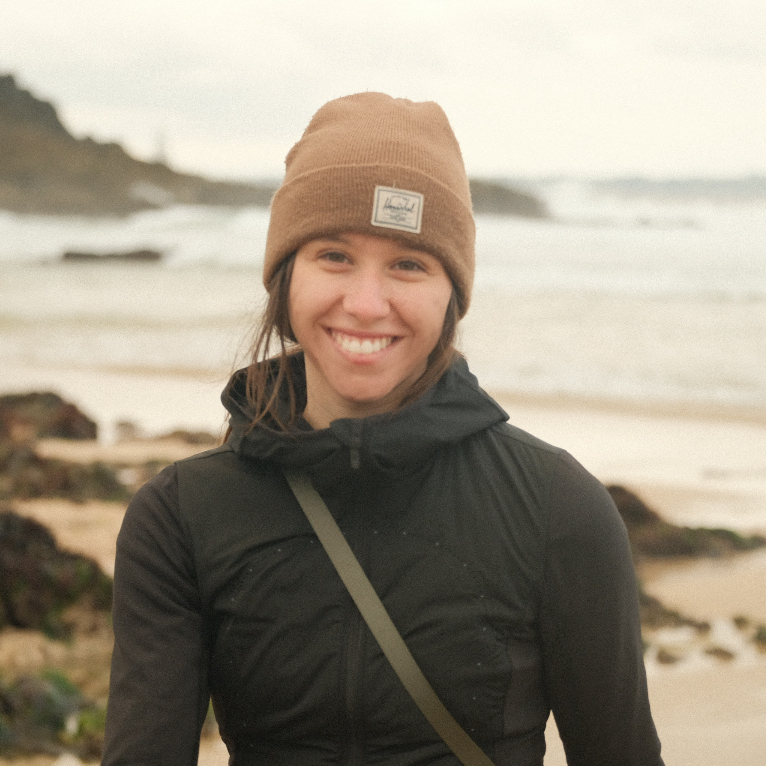 (she/her)
(she/her)
I am pursuing a MSc degree at the University of Alberta, with a focus in conservation and invasive marine ecology. In general, I am exploring how native predators may influence invasive dynamics and how they may indicate invasive species presence. My thesis is in collaboration with Heiltsuk Integrated Resource Management Department (HIRMD) and we are exploring predation on invasive European green crabs (Carcinus maenas) by coastal mustelids, including mink, river otters, and sea otters. Prior to starting my MSc, I worked with Dr. Isabelle Côté at Simon Fraser University researching marine invasions (European green crabs and Japanese False Cerith snails), noise pollution, and animal mediated nutrient dynamics. In my off time you could find me training with my horse for show jumping competitions!
Alexandra De León
I am a marine biologist from Panama, currently pursuing my master’s degree at the University of Alberta on coral reef benthic community composition, using photogrammetry to assess habitat structure and species composition with high spatial accuracy. The objective of this project is to develop non-invasive, data-rich methods for monitoring seafloor ecosystems, supporting long-term conservation and management strategies. My broader research experience spans marine biodiversity, plankton ecology, and fisheries monitoring, working with institutions such as the Smithsonian Tropical Research Institute and SENACYT. I have led and collaborated on projects studying hydromedusae, holoplanktonic gastropods, and planktonic communities along Panama Caribbean and Pacific. I completed my B.Sc. in Marine Biology at the International Maritime University of Panama. As a trained scientific diver, I combine fieldwork with laboratory techniques including PCR, DNA barcoding, and flow imaging microscopy, aiming to contribute to marine conservation and sustainable resource management.
Research Assistants
Zack Tandy
(he/him)
Zack graduated from the University of Alberta with a BSc specializing in Ecology, Evolution, and Environmental Biology. After attending the Bamfield Marine Sciences Centre for their Summer and Fall 2022 programs, his interest in aquatic research has bloomed, especially that in the realm of ecology. Zack works on a range of projects including ocean species trait data collection and database curation, animal dissection and stomach contents analysis, and tissue analysis of nutritional composition through proximate analysis.
Lab Coordinator
Sherry Young
(she/her)
I currently focus on coordinating and supporting research activities in the Green Lab. I am also a community ecologist interested in the impacts of climate change and land-use practices on terrestrial ecosystems, particularly on alpine and arctic plant and mammal phenology. I prioritize multi-disciplinary work in close collaboration with local communities. I earned my Ph.D. at Simon Fraser University in 2025, M.Sc. from Umeå University in Sweden and B.Sc. from the University of Nantes in France. I am now excitedly discovering the marine world through the various projects of the skilled and amazing Green Lab members. When I am not at work, I spend most of my time reading (huge bookworm!), doing photography, going trail running and playing music!
Website | ResearchGate | LinkedIn
Lab Alumni
Emma Atkinson (PhD Winter 2026)
Co-supervised with the Lewis lab
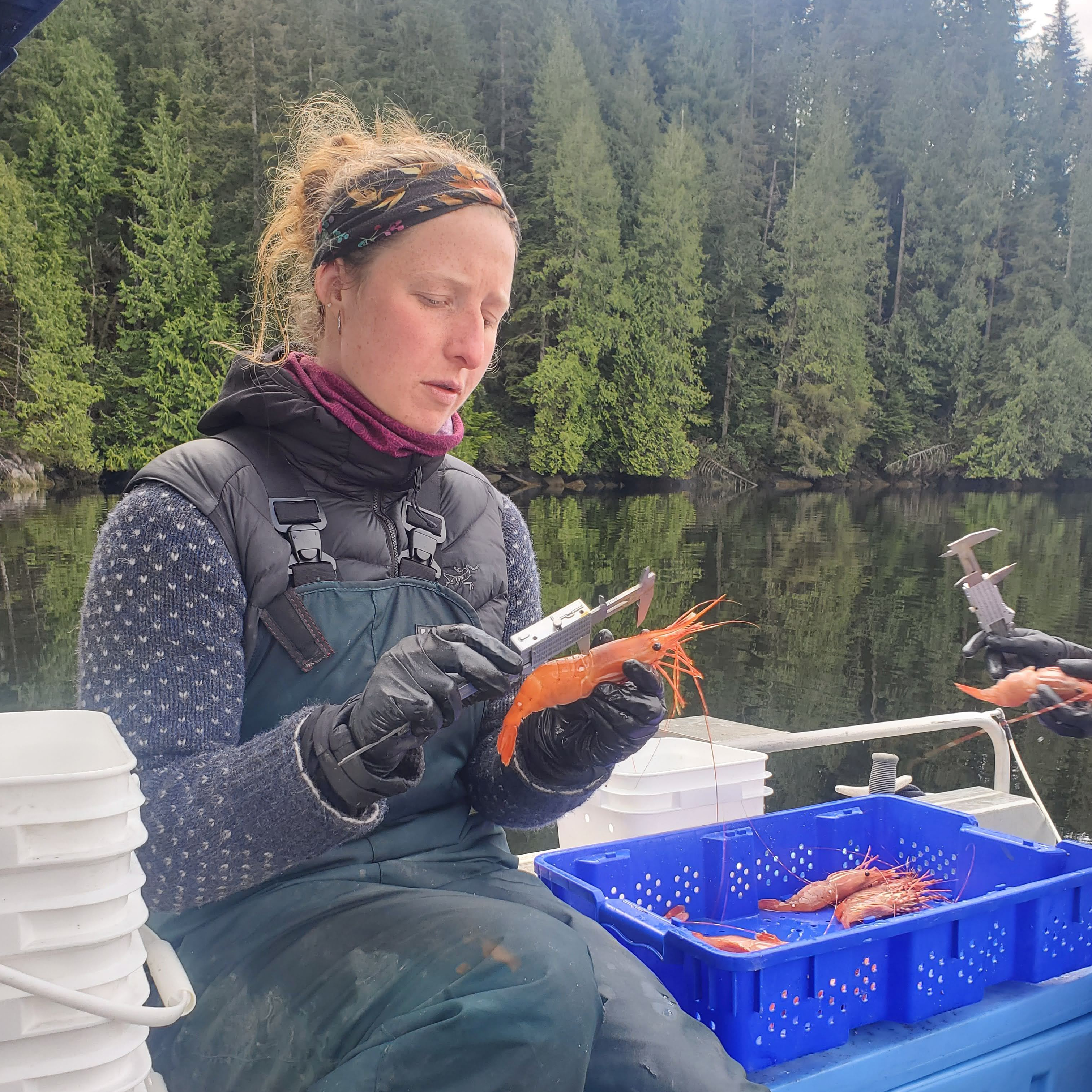
I am a PhD candidate at the University of Alberta in the Biological Sciences department co-supervised by Mark Lewis & Stephanie Green. I am currently based at the University of Victoria as a visiting graduate student. I work on research questions to do with the population biology and fisheries management of marine invertebrates, with a specific focus on the enigmatic lives of spot prawns and their trap fishery on the coast of British Columbia. Prior to starting my PhD, I worked on several projects focused on wild Pacific salmon, ranging from field experiments investigating their behavioural ecology as juveniles to broad scale analyses informing population status assessments. Across projects and study species, I work to combine on-the-ground “boots-wet” biology with quantitative tools and existing long-term data sets. When I’m not coding, I like to cycle, spend time on the water, and dance my heart out to a good tune.
Sofia Panzetta (MSc Winter 2026)
(she/her)
My research focuses on the invasive European Green Crabs (Carcinus maenas). I am currently studying their consumption rates and feeding behaviours at different temperatures to better understand their impact under warming climate conditions on the Pacific Coast. Before starting my master’s, I finished my undergraduate degree at the University of Alberta and completed several undergraduate research courses in the Green Lab, where I studied reef fish habitat selection in the Florida Keys. When I’m not thinking about crabs, I enjoy hiking, paddle boarding, and working through my very long reading list!
Fabian Kyne (Fall 2025)
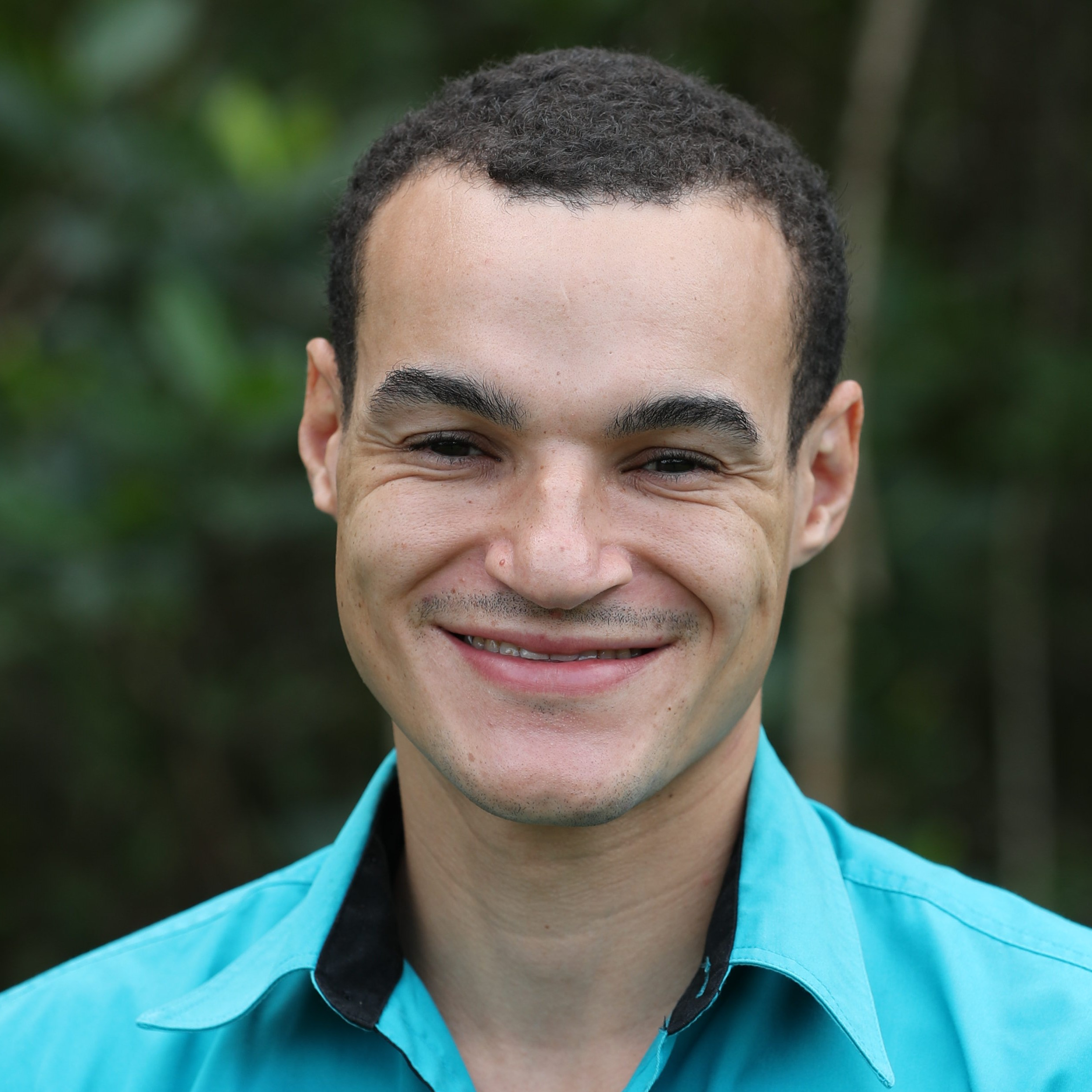 I am a PhD candidate at the University of the West Indies, Jamaica; co-supervised by Dr Stephanie Green. I am researching the ecology of the invasive lionfish and developing methods for impact assessment, mitigation and adaptive management for protected areas along the Belize Barrier Reef. I use a mixed methods approach, combining ecological monitoring and socio-economic data to assess how the lionfish invasion is impacting fisheries and coastal resources within Belize as well as developing recommendations for management. The outputs will be shared through a multi-stakeholder working group and national strategy which sets out a holistic framework for integrating ecological, economic, and social goals for managing invasive species in Belize. Prior to the PhD, I completed an MSc at the University of Southampton, UK and have worked across the Caribbean to disseminate knowledge and establish impactful conservation strategies and solutions that strengthen the resiliency of marine ecosystems and the people dependent on them. I am happiest being around, above or underwater and I am passionate about developing local conservation champions to impact change.
I am a PhD candidate at the University of the West Indies, Jamaica; co-supervised by Dr Stephanie Green. I am researching the ecology of the invasive lionfish and developing methods for impact assessment, mitigation and adaptive management for protected areas along the Belize Barrier Reef. I use a mixed methods approach, combining ecological monitoring and socio-economic data to assess how the lionfish invasion is impacting fisheries and coastal resources within Belize as well as developing recommendations for management. The outputs will be shared through a multi-stakeholder working group and national strategy which sets out a holistic framework for integrating ecological, economic, and social goals for managing invasive species in Belize. Prior to the PhD, I completed an MSc at the University of Southampton, UK and have worked across the Caribbean to disseminate knowledge and establish impactful conservation strategies and solutions that strengthen the resiliency of marine ecosystems and the people dependent on them. I am happiest being around, above or underwater and I am passionate about developing local conservation champions to impact change.
Hannah Lowes (Lab coordinator 2023-2024)
 I coordinate and assist with research activities in the Green and Blewett Labs at UAlberta. My research interests lie in the realms of aquatic toxicology and marine invertebrate biology. I completed both my BSc. (2020) and MSc. (2023) at the University of Alberta, supervised by Dr. Tamzin Blewett. During my MSc., I studied the physiological effects of copper toxicity and tidal emersion on two marine invertebrates, the orange sea cucumber (Cucumaria miniata) and the Mediterranean mussel (Mytilus galloprovincialis). In my free time I enjoy hiking, biking, birdwatching, tide pooling, and reading, and I am passionate about treating our planet (and the people on it) with respect and care.
I coordinate and assist with research activities in the Green and Blewett Labs at UAlberta. My research interests lie in the realms of aquatic toxicology and marine invertebrate biology. I completed both my BSc. (2020) and MSc. (2023) at the University of Alberta, supervised by Dr. Tamzin Blewett. During my MSc., I studied the physiological effects of copper toxicity and tidal emersion on two marine invertebrates, the orange sea cucumber (Cucumaria miniata) and the Mediterranean mussel (Mytilus galloprovincialis). In my free time I enjoy hiking, biking, birdwatching, tide pooling, and reading, and I am passionate about treating our planet (and the people on it) with respect and care.
Alana Krug-MacLeod (MSc Spring 2024)
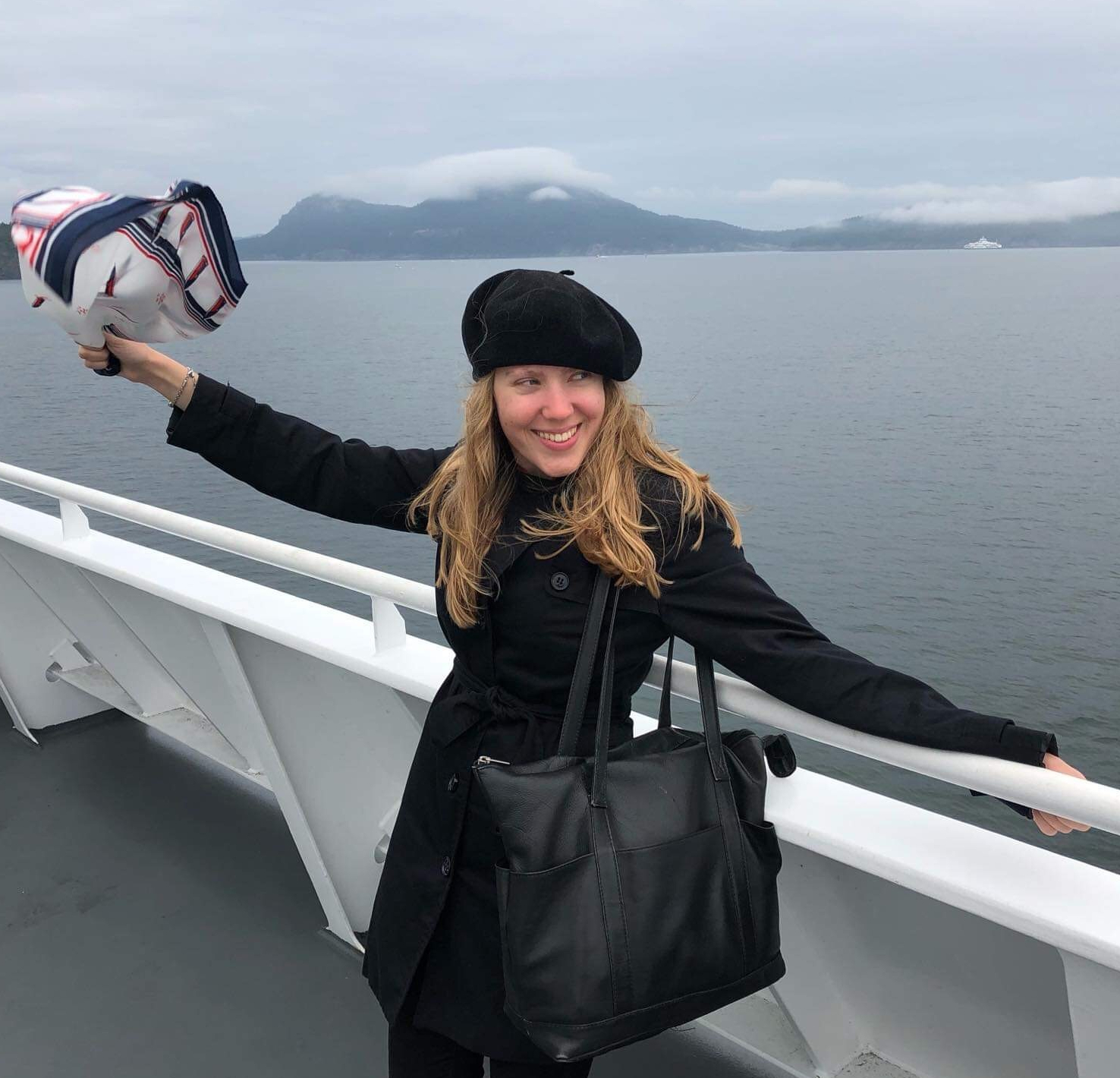 My research compares the nutritional value of small pelagic species known to be consumed by albacore tuna. Ultimately I want to know if patterns of variation in the nutritional quality of prey species that are exhibited across environmental gradients in the California Current Marine Ecosystem are conserved in periods of rapid environmental change. Prior to joining the Green Lab, I completed an interdisciplinary undergraduate honours degree in Environmental Biology at the University of Saskatchewan. I assessed persistent effects on shorebirds of in ovo exposure to contamination and temperature stress. I also used GIS to identify opportunities for grain farmers to increase ecosystem services, and processed fish bone samples from Viking middens to monitor climate changes. Sherlock Holmes, historical fashion, mid-century furniture, jazz, vintage film, and travelling are a few of my obsessions.
My research compares the nutritional value of small pelagic species known to be consumed by albacore tuna. Ultimately I want to know if patterns of variation in the nutritional quality of prey species that are exhibited across environmental gradients in the California Current Marine Ecosystem are conserved in periods of rapid environmental change. Prior to joining the Green Lab, I completed an interdisciplinary undergraduate honours degree in Environmental Biology at the University of Saskatchewan. I assessed persistent effects on shorebirds of in ovo exposure to contamination and temperature stress. I also used GIS to identify opportunities for grain farmers to increase ecosystem services, and processed fish bone samples from Viking middens to monitor climate changes. Sherlock Holmes, historical fashion, mid-century furniture, jazz, vintage film, and travelling are a few of my obsessions.
Key words: marine ecosystems, human-nature connections, climate change, nutritional quality, small pelagic species.
Kai Shanebeck (PhD Fall 2023)
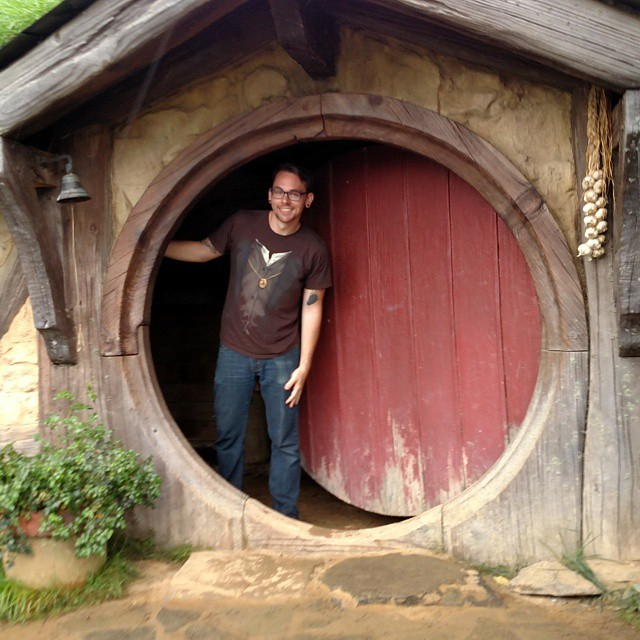 I studied the interactions between parasites and aquatic mammals. My project investigated the sub-lethal effects of macro-parasites on river otter and mink in Alberta and British Columbia. Parasites are often considered unimportant in large mammal individual or population health; however, parasites can have complex effects on host energetics (systemic functioning, repair, growth, reproduction). My project asked: do parasitic helminths (worms) influence aquatic mammal individual fitness and population dynamics? Helminths also have complex relationships with pollutants (especially intestinal helminths); and heavy metals are an important threat for aquatic ecosystems in Canada. My project also monitored pollutants in both parasite and host tissues: are parasites related to increased or decreased accumulation of pollutants in their host? I was born and raised in southern California; was a research assistant with the Tinker Lab (UCSC) and volunteered for the Monterey Bay Aquarium’s Sea Otter Research and Conservation Program. I completed my MSc in Ecology at the Universität Bremen, Germany; where I studied the demographics and site selection of intestinal Acanthocephalans in Sea Otters and Seals through the Institute for Terrestrial and Aquatic Wildlife Research, University of Veterinary Medicine Hannover, Foundation. I am passionate about marine conservation, parasitology, and cross-discipline collaboration in research!
I studied the interactions between parasites and aquatic mammals. My project investigated the sub-lethal effects of macro-parasites on river otter and mink in Alberta and British Columbia. Parasites are often considered unimportant in large mammal individual or population health; however, parasites can have complex effects on host energetics (systemic functioning, repair, growth, reproduction). My project asked: do parasitic helminths (worms) influence aquatic mammal individual fitness and population dynamics? Helminths also have complex relationships with pollutants (especially intestinal helminths); and heavy metals are an important threat for aquatic ecosystems in Canada. My project also monitored pollutants in both parasite and host tissues: are parasites related to increased or decreased accumulation of pollutants in their host? I was born and raised in southern California; was a research assistant with the Tinker Lab (UCSC) and volunteered for the Monterey Bay Aquarium’s Sea Otter Research and Conservation Program. I completed my MSc in Ecology at the Universität Bremen, Germany; where I studied the demographics and site selection of intestinal Acanthocephalans in Sea Otters and Seals through the Institute for Terrestrial and Aquatic Wildlife Research, University of Veterinary Medicine Hannover, Foundation. I am passionate about marine conservation, parasitology, and cross-discipline collaboration in research!
Research Gate Homepage Google Scholar Homepage
Cole Brookson (MSc Fall 2023)
 My research focuses on using computational tools to investigate how ecological networks rewire in the wake of perturbations. I work mainly on food webs, and I am interested in how we can use species traits to better predict and understand how trophic structures change as a result of various types of anthropogenic disturbance, in both broad theoretical contexts as well as specific applied systems. Previous to my work at the University of Alberta, I completed my undergrad in Ecology and Evolutionary Biology at the University of Toronto, where I worked on modelling population responses to pollutants and pathogens in aquatic ecosystems. I am passionate about Open Science and promoting computational literacy and training in the biological sciences. Google Scholar Homepage
My research focuses on using computational tools to investigate how ecological networks rewire in the wake of perturbations. I work mainly on food webs, and I am interested in how we can use species traits to better predict and understand how trophic structures change as a result of various types of anthropogenic disturbance, in both broad theoretical contexts as well as specific applied systems. Previous to my work at the University of Alberta, I completed my undergrad in Ecology and Evolutionary Biology at the University of Toronto, where I worked on modelling population responses to pollutants and pathogens in aquatic ecosystems. I am passionate about Open Science and promoting computational literacy and training in the biological sciences. Google Scholar Homepage
Natasha Hardy (Postdoc Fellow 2019-2022)
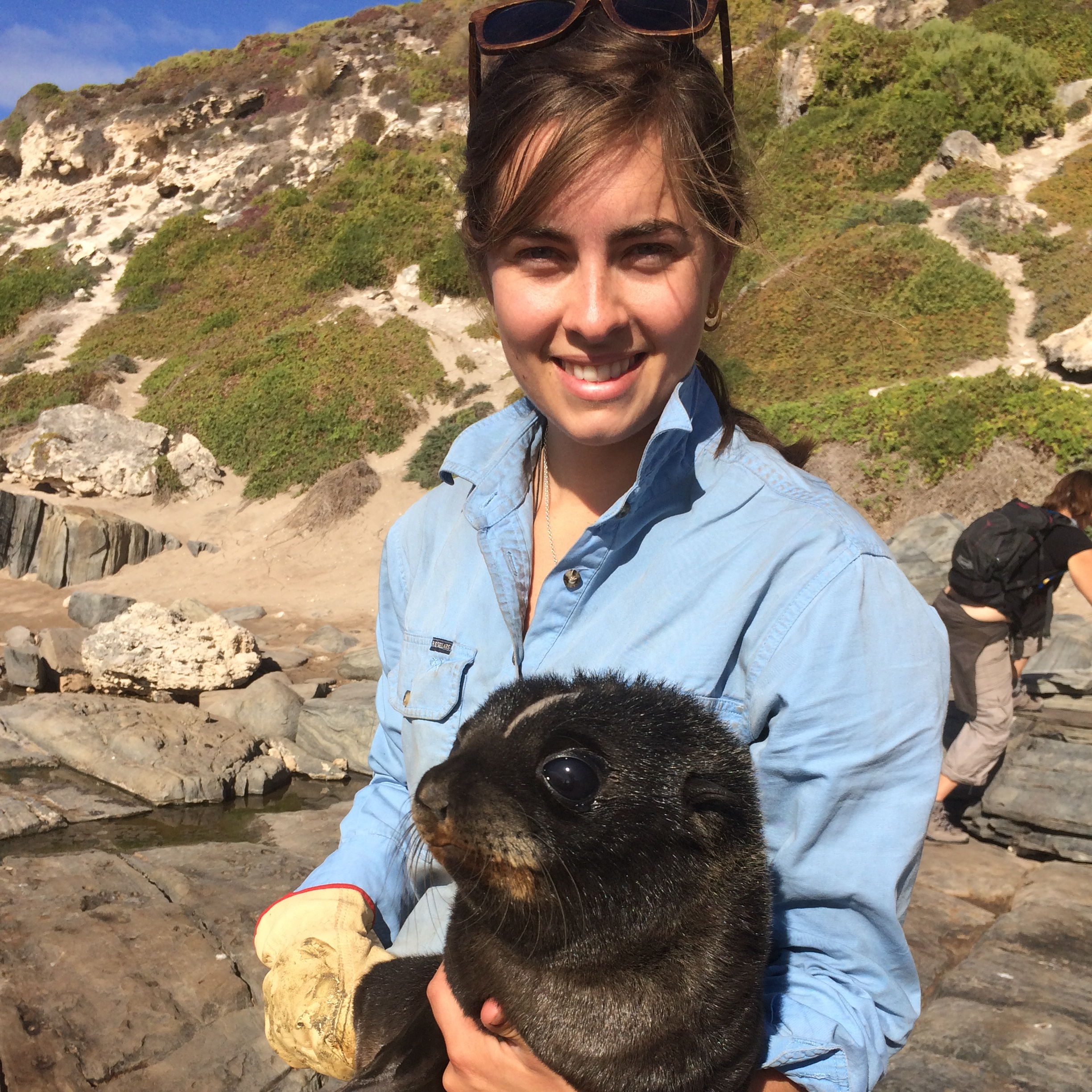 My research centres on understanding and maximising ecosystem functionality, ecosystem services and predator-prey trophic relationships in socio-ecological systems. My postdoctoral work focused on developing frameworks for forecasting marine food web trophodynamics under climate change in the California Current Large Marine Ecosystem in collaboration with Stanford University and NOAA Southwest Fisheries Science Center. Specifically, I investiaged the impacts of climate change on albacore tuna resource use and distributions, an important fishery across the North Pacific. My research spans from planktonic organisms to fish and seals across the Pacific Ocean. I obtained a B.Sc. with Honours with Prof. Maria Byrne, and a Ph.D in 2018 from the University of Sydney, working with Associate Prof. Will Figueira on the ecological interactions of recolonizing populations of fur seals and temperate reef communities in southeastern Australia. I am a settler, growing ally, and advocate for equity and diversity in biological sciences.
My research centres on understanding and maximising ecosystem functionality, ecosystem services and predator-prey trophic relationships in socio-ecological systems. My postdoctoral work focused on developing frameworks for forecasting marine food web trophodynamics under climate change in the California Current Large Marine Ecosystem in collaboration with Stanford University and NOAA Southwest Fisheries Science Center. Specifically, I investiaged the impacts of climate change on albacore tuna resource use and distributions, an important fishery across the North Pacific. My research spans from planktonic organisms to fish and seals across the Pacific Ocean. I obtained a B.Sc. with Honours with Prof. Maria Byrne, and a Ph.D in 2018 from the University of Sydney, working with Associate Prof. Will Figueira on the ecological interactions of recolonizing populations of fur seals and temperate reef communities in southeastern Australia. I am a settler, growing ally, and advocate for equity and diversity in biological sciences.
Google Scholar homepage Research Gate homepage
__
Alexandra Davis (Postdoc Fellow 2019-2022)
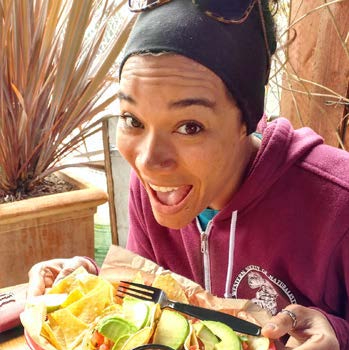 I am a marine spatial ecologist and an advocate for equity and diversity in conservation sciences. In the Green Lab, I was a Liber Ero Postdoctoral Fellow developing conservation strategies for interventions of marine/ aquatic invasive species. I worked with multiple partners and management agencies to understand valued resources, develop spatial priorities, and quantify economic costs for managing invasive species. My study species include Indo-Pacific lionfish in US Caribbean and Tropical Western Atlantic territories, and the European Green Crab in British Colombia and the Salish Sea. I currently serve on multiple EDJI committees and am a member of the board of directors for Black Women in Ecology Evolution and Marine Science (BWEEMS). My work within these groups is to elevate marginalized voices in STEM and provide mentorship, professional development, and opportunities for success in the field(s).
I am a marine spatial ecologist and an advocate for equity and diversity in conservation sciences. In the Green Lab, I was a Liber Ero Postdoctoral Fellow developing conservation strategies for interventions of marine/ aquatic invasive species. I worked with multiple partners and management agencies to understand valued resources, develop spatial priorities, and quantify economic costs for managing invasive species. My study species include Indo-Pacific lionfish in US Caribbean and Tropical Western Atlantic territories, and the European Green Crab in British Colombia and the Salish Sea. I currently serve on multiple EDJI committees and am a member of the board of directors for Black Women in Ecology Evolution and Marine Science (BWEEMS). My work within these groups is to elevate marginalized voices in STEM and provide mentorship, professional development, and opportunities for success in the field(s).
http://alexandracddavis.com http://liberero.ca/meet-the-fellows/ http://bweems.org
___
Courtney Stuart (MSc Winter 2022)
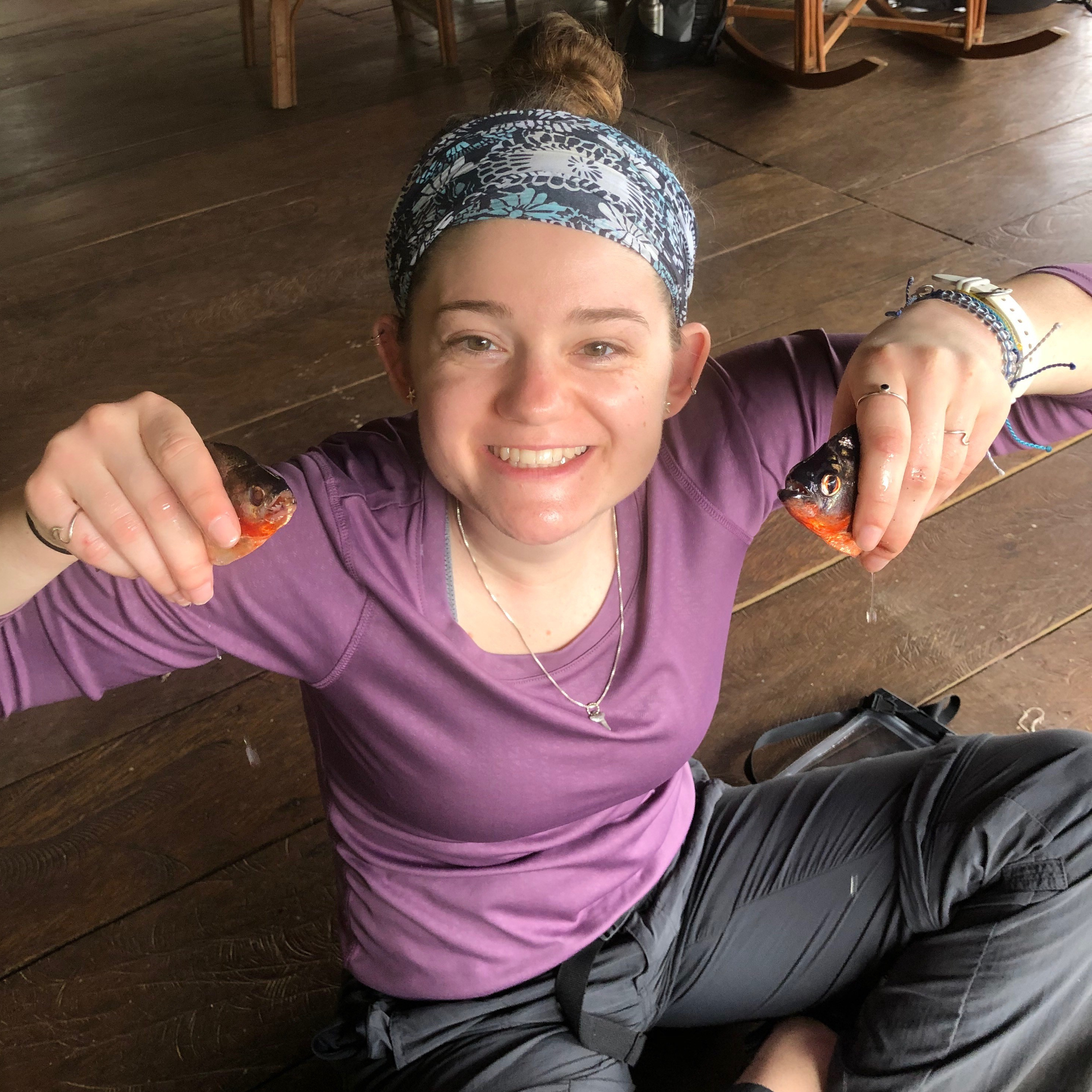 I am a marine spatial ecologist who studied connectivity across the mangrove-seagrass-reef continuum of the Florida Keys. The main goal of my MSc was to construct species- and stage-specific models of habitat suitability for reef fish with complex life histories, particularly those that involve ontogenetic habitat shifts. These regional scale models are the basis for connectivity analyses and are fundamental to the construction of ecologically-relevant management plans. Prior to joining the Green Lab, I obtained my BS in Marine Vertebrate Biology from the School of Marine and Atmospheric Sciences at Stony Brook University. My senior honors thesis examined the patterns, rates, and socio-ecological consequences of tooth replacement in fishes of the Peruvian Amazon. I am passionate about diversity in the scientific community, science communication and mentorship, and #WomenInGIS.
I am a marine spatial ecologist who studied connectivity across the mangrove-seagrass-reef continuum of the Florida Keys. The main goal of my MSc was to construct species- and stage-specific models of habitat suitability for reef fish with complex life histories, particularly those that involve ontogenetic habitat shifts. These regional scale models are the basis for connectivity analyses and are fundamental to the construction of ecologically-relevant management plans. Prior to joining the Green Lab, I obtained my BS in Marine Vertebrate Biology from the School of Marine and Atmospheric Sciences at Stony Brook University. My senior honors thesis examined the patterns, rates, and socio-ecological consequences of tooth replacement in fishes of the Peruvian Amazon. I am passionate about diversity in the scientific community, science communication and mentorship, and #WomenInGIS.
Victoria Van Mierlo (MSc Fall 2021)
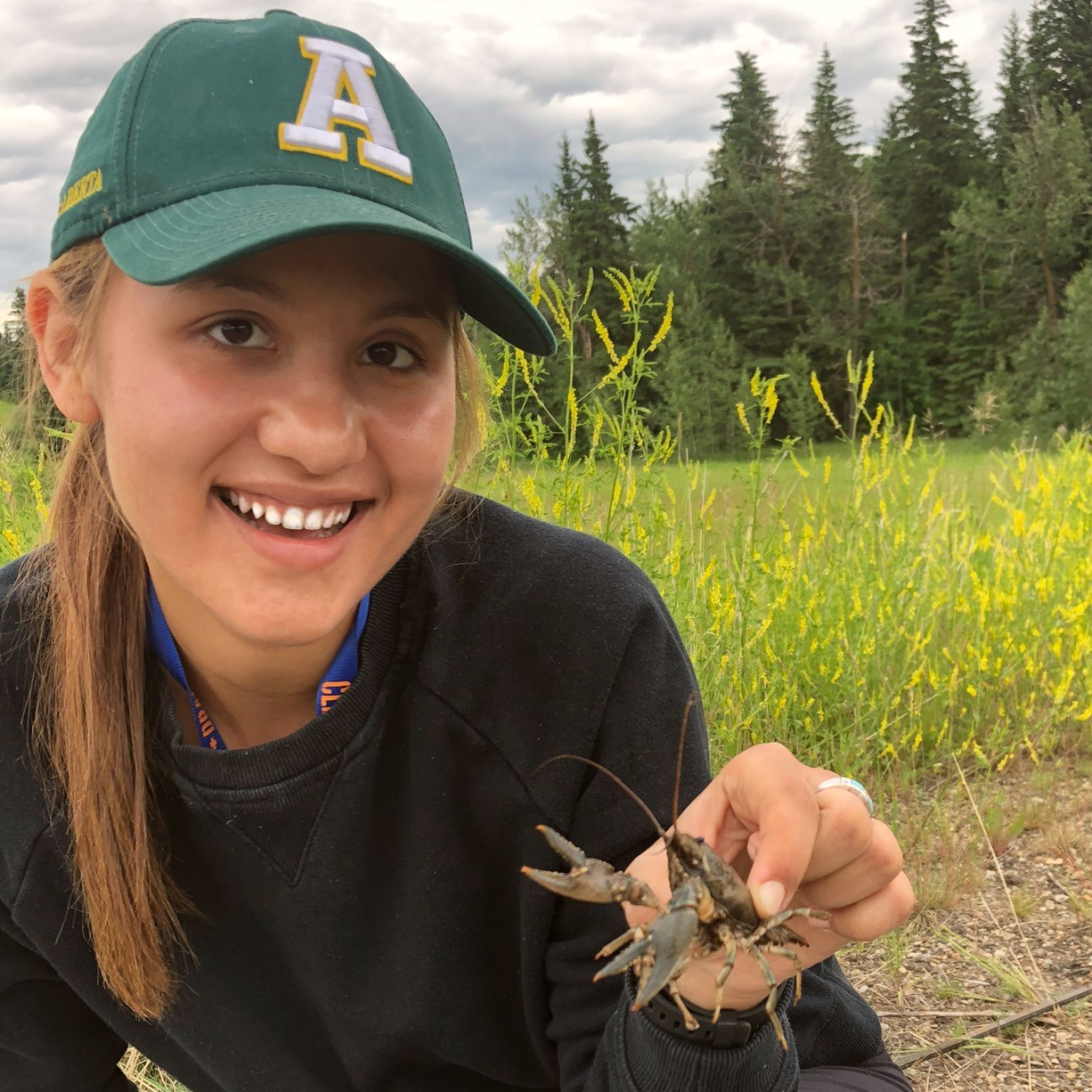 I studied the interactions of invasive Northern Crayfish (Faxionis virilis) with native freshwater fish communities and effects on food web dynamics in Alberta. As a lover of nature and native Southern Ontarian, I am especially interested in the extensive negative impacts that invasive species have on native ecosystems. I received my BSc in Honors Biology at McMaster University, where my thesis work was focused on the efficacy of entomopathogenic fungi to weaken the immune system of the invasive marmorated stink bug (Halyomorpha halys). Additionally, I participated in coral reef species assemblage surveys after the introduction of invasive lionfish at the Cape Eleuthera Institute. Through my MSc work, I hope to provide information to managers that improves invasive species management at the watershed level. I am passionate about sustainability, interdisciplinary solutions, and inclusion in science and research!
I studied the interactions of invasive Northern Crayfish (Faxionis virilis) with native freshwater fish communities and effects on food web dynamics in Alberta. As a lover of nature and native Southern Ontarian, I am especially interested in the extensive negative impacts that invasive species have on native ecosystems. I received my BSc in Honors Biology at McMaster University, where my thesis work was focused on the efficacy of entomopathogenic fungi to weaken the immune system of the invasive marmorated stink bug (Halyomorpha halys). Additionally, I participated in coral reef species assemblage surveys after the introduction of invasive lionfish at the Cape Eleuthera Institute. Through my MSc work, I hope to provide information to managers that improves invasive species management at the watershed level. I am passionate about sustainability, interdisciplinary solutions, and inclusion in science and research!
Aneri Garg (MSc Spring 2021)
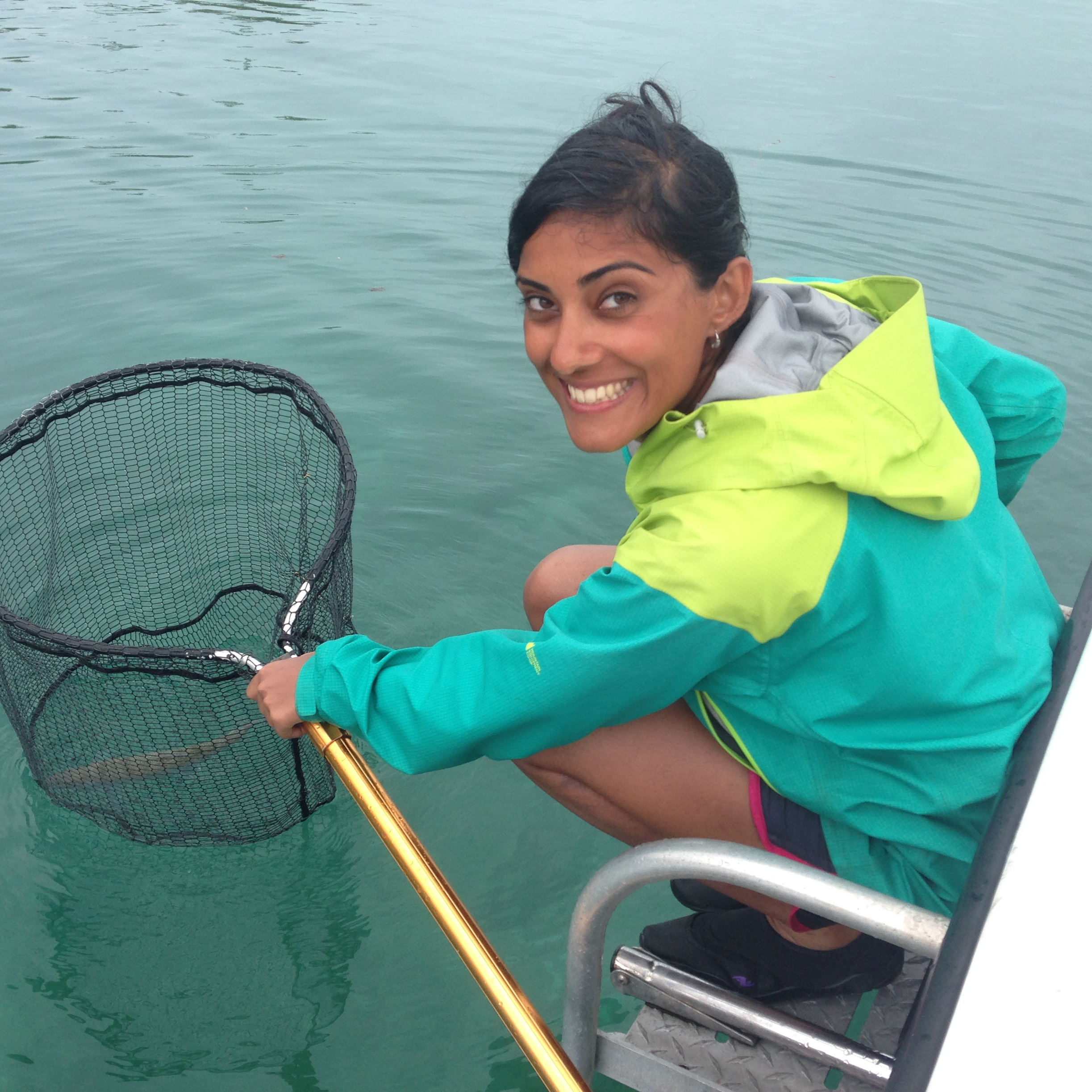 I studied the effect of restoration activities on community dynamics and ecosystem assemblage using coral reefs as a model ecosystem. My interest in applied science is to create tools for conservation practitioners, while working with diverse collaborators to create sustainable conservation and restoration solutions. Prior to the University of Alberta, I completed research internships at the Coral Health and Disease Lab at Mote Mote Marine Laboratories in Sarasota, FL, and at Cape Eleuthera Institute in the Bahamas. My undergraduate research at the Marine Macroecology and Biogeochemistry Lab at Mount Allison University focused on quantifying major macromolecular pools in a dominant Arctic phytoplankton strain. I am passionate about diversity and inclusion in science, science communication, and tiny but vital organisms (ie corals, algae, and lichen!)
I studied the effect of restoration activities on community dynamics and ecosystem assemblage using coral reefs as a model ecosystem. My interest in applied science is to create tools for conservation practitioners, while working with diverse collaborators to create sustainable conservation and restoration solutions. Prior to the University of Alberta, I completed research internships at the Coral Health and Disease Lab at Mote Mote Marine Laboratories in Sarasota, FL, and at Cape Eleuthera Institute in the Bahamas. My undergraduate research at the Marine Macroecology and Biogeochemistry Lab at Mount Allison University focused on quantifying major macromolecular pools in a dominant Arctic phytoplankton strain. I am passionate about diversity and inclusion in science, science communication, and tiny but vital organisms (ie corals, algae, and lichen!)
Noelle Helder (MSc Spring 2021)
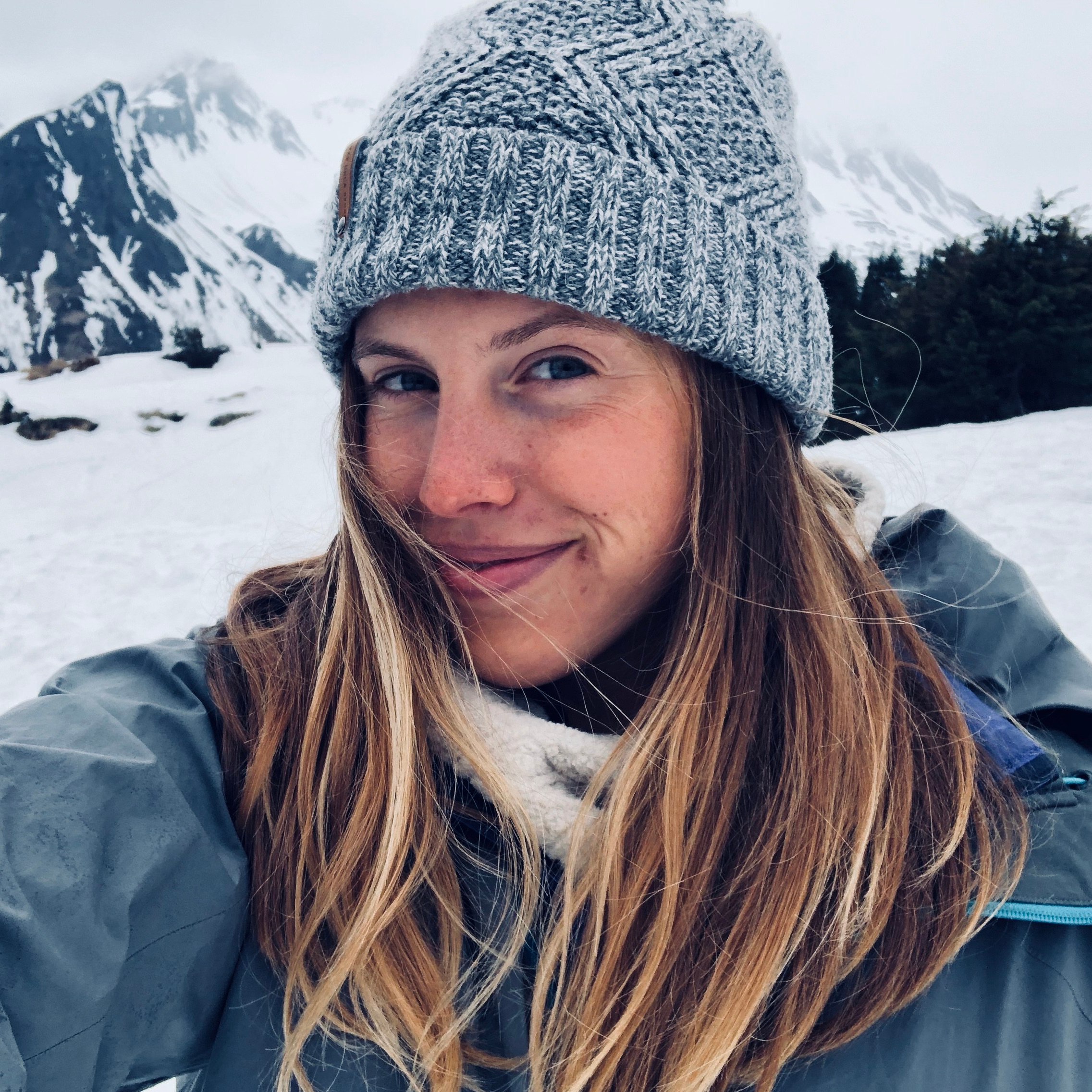 I studied how species assemblages on restored coral reefs in the Florida Keys affect nutrient recycling. Stemming from a strong interest in natural resource management at all levels, I aim to use applied sciences to better understand changes in economically valuable ecosystems and develop tools to influence better management decisions. Prior to my MSc, I spent time working with the School for Field Studies in the Turks and Caicos Islands and at the Central Caribbean Marine Institute in the Cayman Islands, developing an interest in engaging stakeholders starting at the community level in resource management decisions. As an avid outdoor enthusiast and guide, I am also passionate about experience-based education, expedition-based research, and empowering underrepresented communities to engage in scientific endeavors. My research uses SCUBA surveys, photogrammetry, stable isotopes, and spatially explicit modelling to understand feedbacks between reef fish communities and their habitat on coral reefs in the Florida Keys National Marine Sanctuary. We work closely with local partners including NOAA and the Coral Restoration Foundation. Previously, I have worked throughout the Caribbean on projects relating to Marine Protected Areas, coral reef conservation, and science communication. I also co-lead the Education and Outreach Committee with the International Coral Reef Society Student Chapter.
I studied how species assemblages on restored coral reefs in the Florida Keys affect nutrient recycling. Stemming from a strong interest in natural resource management at all levels, I aim to use applied sciences to better understand changes in economically valuable ecosystems and develop tools to influence better management decisions. Prior to my MSc, I spent time working with the School for Field Studies in the Turks and Caicos Islands and at the Central Caribbean Marine Institute in the Cayman Islands, developing an interest in engaging stakeholders starting at the community level in resource management decisions. As an avid outdoor enthusiast and guide, I am also passionate about experience-based education, expedition-based research, and empowering underrepresented communities to engage in scientific endeavors. My research uses SCUBA surveys, photogrammetry, stable isotopes, and spatially explicit modelling to understand feedbacks between reef fish communities and their habitat on coral reefs in the Florida Keys National Marine Sanctuary. We work closely with local partners including NOAA and the Coral Restoration Foundation. Previously, I have worked throughout the Caribbean on projects relating to Marine Protected Areas, coral reef conservation, and science communication. I also co-lead the Education and Outreach Committee with the International Coral Reef Society Student Chapter.
Personal website (currently under construction!): https://noellehelder.weebly.com/
Natasha Pentyliuk (MSc Spring 2021)
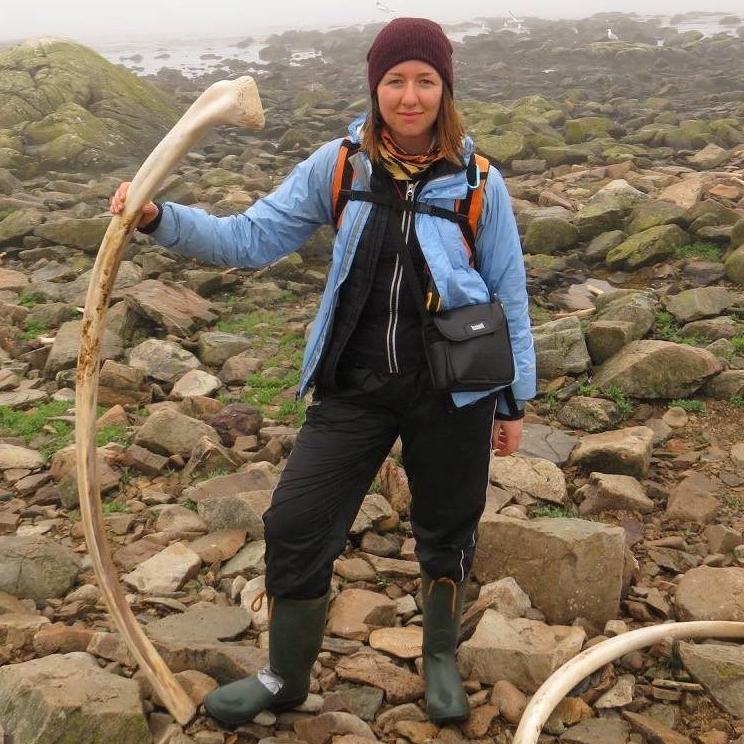 I studied aquatic invasive species with a social-ecological focus on the roles community engagement play in invasion success and management. I take an interdisciplinary approach to research and collaboration, with the goal of engaging with the public, government, and industry to work towards more sustainable communities. After completing a degree in marine biology with a minor in psychology at Dalhousie University I gained experience in scientific outreach, education, and research, and now continue my journey at the University of Alberta.
I studied aquatic invasive species with a social-ecological focus on the roles community engagement play in invasion success and management. I take an interdisciplinary approach to research and collaboration, with the goal of engaging with the public, government, and industry to work towards more sustainable communities. After completing a degree in marine biology with a minor in psychology at Dalhousie University I gained experience in scientific outreach, education, and research, and now continue my journey at the University of Alberta.
___
___
Iris George (Undergraduate Researcher 2019-21)
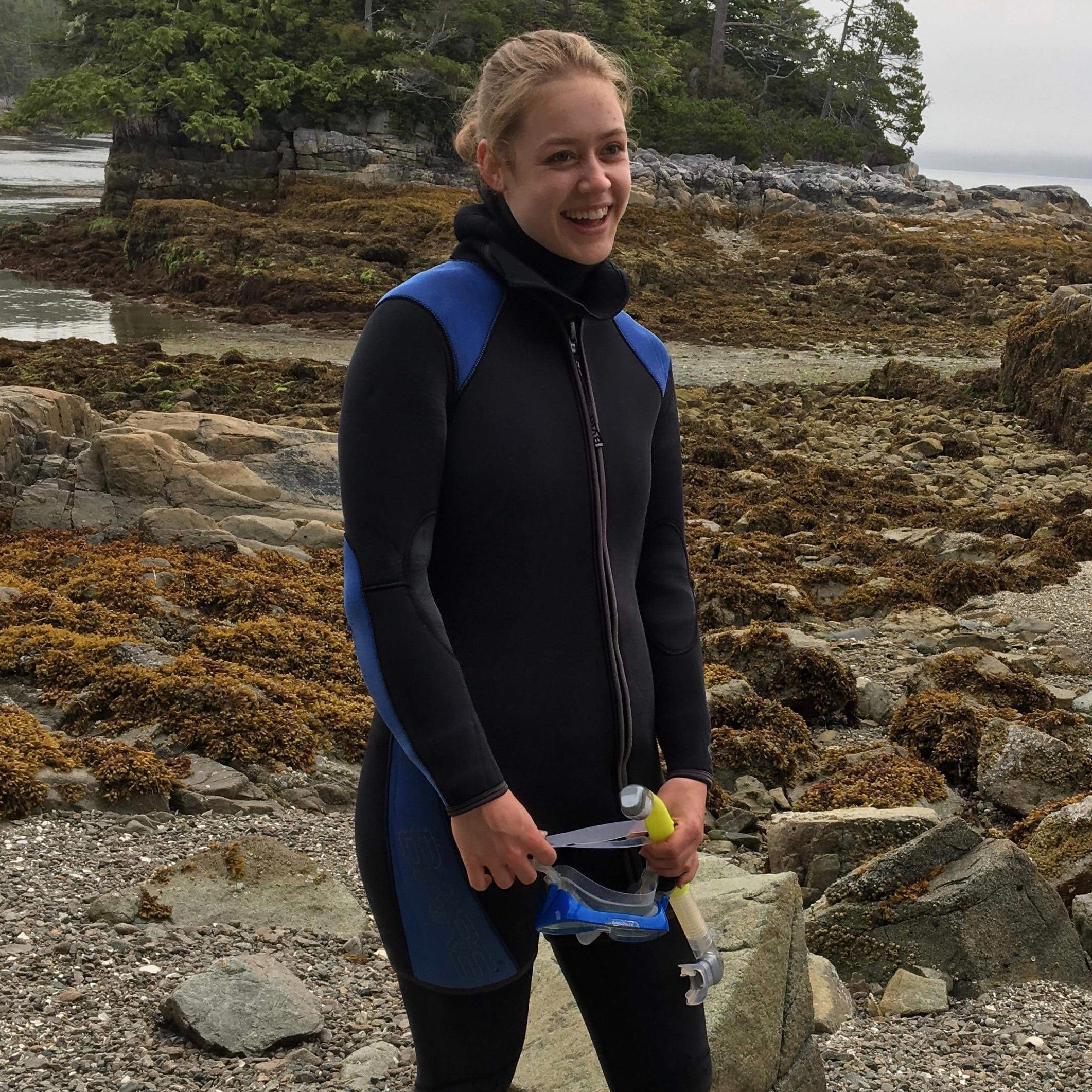 I completed my undergraduate degree in Ecology, Evolution, and Environmental Biology at the University of Alberta and hope to continue my research career in graduate school. My research projects in the lab focused on the diets of albacore tuna in the California Current Large Marine Ecosystem, and the efficacy of survey techniques for Caribbean coral reef fish community monitoring.
I completed my undergraduate degree in Ecology, Evolution, and Environmental Biology at the University of Alberta and hope to continue my research career in graduate school. My research projects in the lab focused on the diets of albacore tuna in the California Current Large Marine Ecosystem, and the efficacy of survey techniques for Caribbean coral reef fish community monitoring.
___
___
___
___
Zachary Roote (Undergraduate Researcher 2019-21)
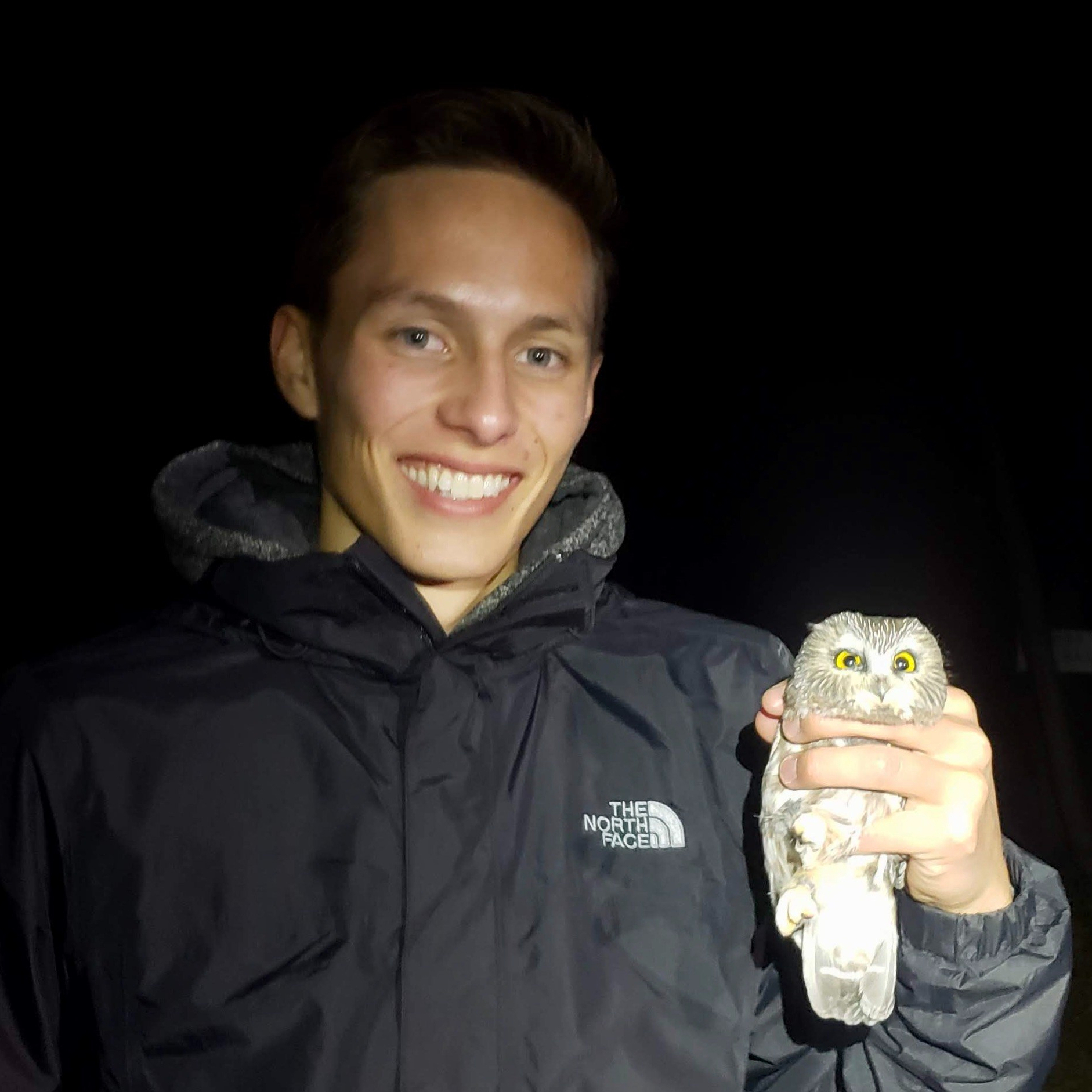 I completed my undergraduate degree in Conservation Biology degree at the University of Alberta. Through an NSERC USRA in Summer 2019 and Biol 499 in 2020-21, I tested the desktop ecologist waters, working with Dr. Natasha Hardy to identify knowledge gaps and assess variability in the prey quality literature for species found in the diets of albacore tuna.
I completed my undergraduate degree in Conservation Biology degree at the University of Alberta. Through an NSERC USRA in Summer 2019 and Biol 499 in 2020-21, I tested the desktop ecologist waters, working with Dr. Natasha Hardy to identify knowledge gaps and assess variability in the prey quality literature for species found in the diets of albacore tuna.
___
___
___
Caitlin Morganson (Undergraduate Researcher 2020-21)
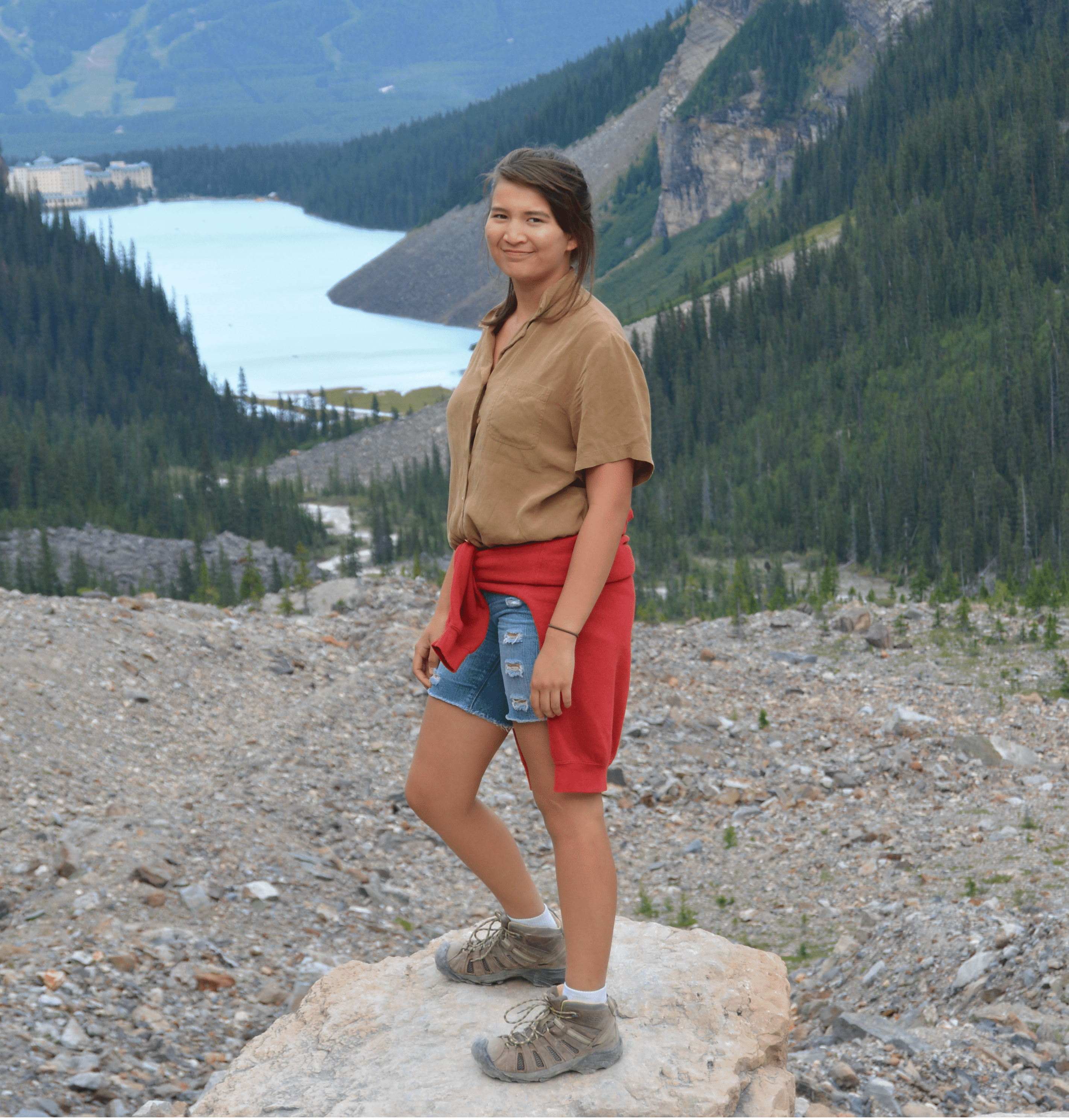 I graduated with a degree in Animal Biology degree program at the University of Alberta. Through a Biol 499 in 2020-21, I examined trait-based foraging behaviours of albacore tuna in the California Current System. Specifically, I worked in collaboration with Dr. Natasha Hardy and the Green the lab at UAlberta, and researchers at NOAA and Stanford University, to collect and analyse a suite of traits of available and used albacore prey data using multivariate statistics.
I graduated with a degree in Animal Biology degree program at the University of Alberta. Through a Biol 499 in 2020-21, I examined trait-based foraging behaviours of albacore tuna in the California Current System. Specifically, I worked in collaboration with Dr. Natasha Hardy and the Green the lab at UAlberta, and researchers at NOAA and Stanford University, to collect and analyse a suite of traits of available and used albacore prey data using multivariate statistics.
Cindy Matuch (Undergraduate Researcher 2019-20)
I was a NOAA Center for Coastal and Marine Ecosystems Undergraduate Scholar at the California State University of Monterey Bay and currently working towards a Marine Science degree with a minor in Statistics. I studied the foraging traits of albacore tuna with Dr. Natasha Hardy to help forecast what their diet might me once this species migrates due to climate change.
___
___
___
Daniel Field (Undergraduate Researcher 2019-20)
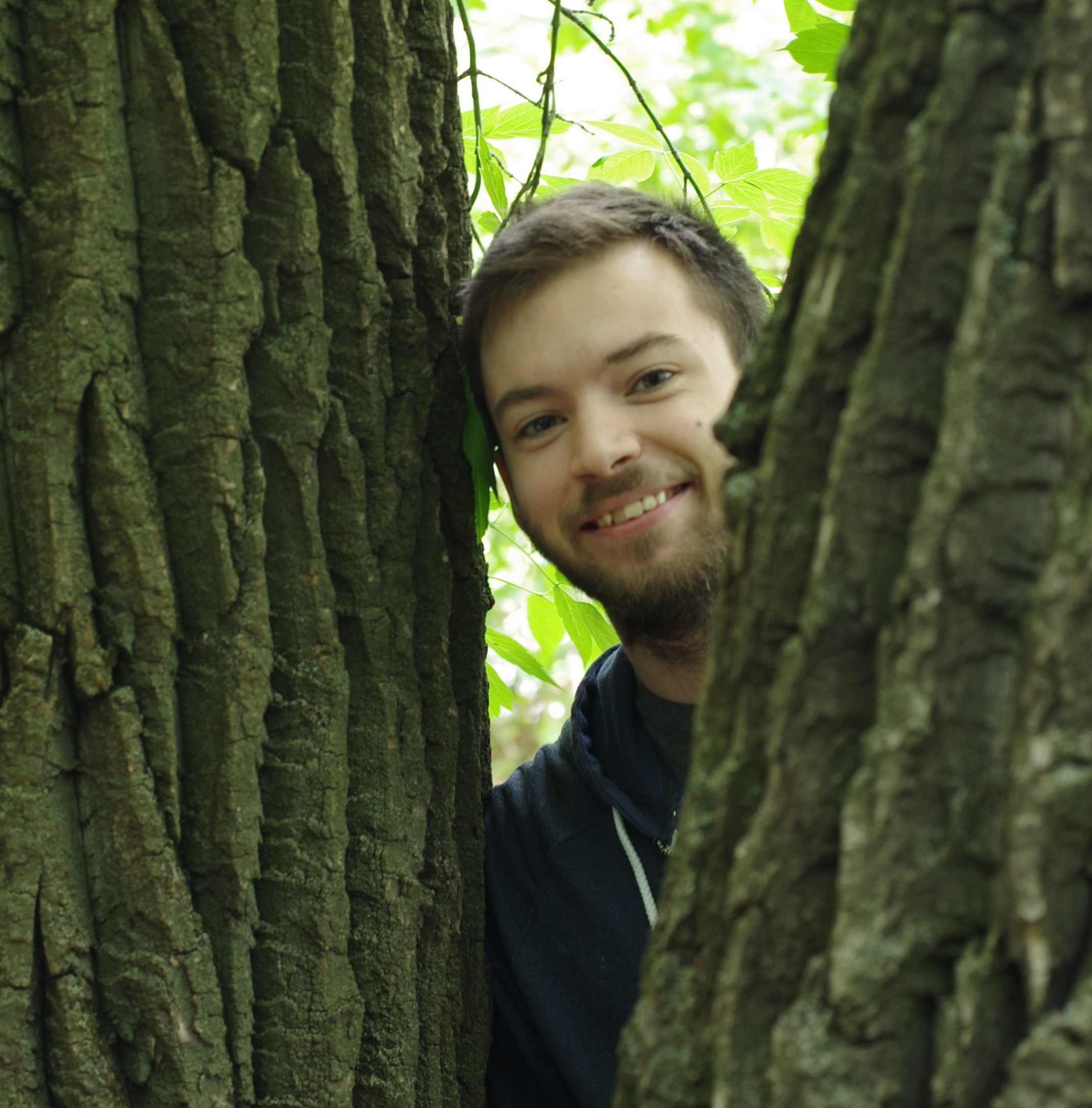
I’m a biological sciences major interested in invertebrate biology. Through a UAlberta Undergraduate Research Award and Biol 298, my project focused on automating processes in ArcMap to collect terrain data from 3D models of reef ecosystems. I also used said data to take a rudimentary look at how terrain rugosity affects benthic organism diversity across natural and restored reef sites.
___
Elizabeth Smith (MSc 2019, University of the Virgin Islands)
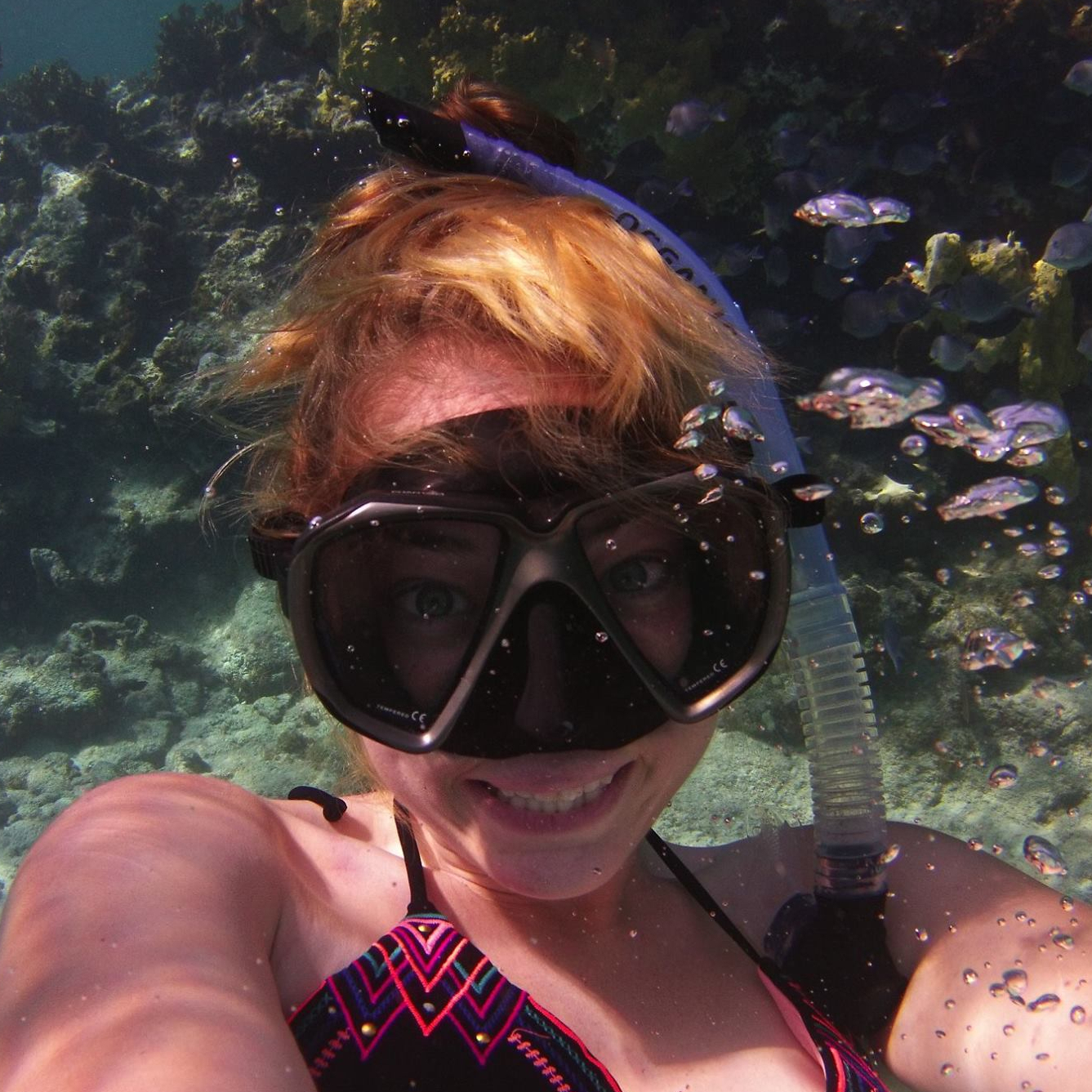 I studied ecological and environmental drivers of invasive lionfish (Pterois volitans) movement among invaded coral reefs in St. Croix, USVI. My project involved implanting lionfish with internal acoustic transmitters within a Vemco Positioning System, yielding fine-scale movement patterns among habitat patches in relation to gradients of abiotic conditions, resource availability, and competition.
I studied ecological and environmental drivers of invasive lionfish (Pterois volitans) movement among invaded coral reefs in St. Croix, USVI. My project involved implanting lionfish with internal acoustic transmitters within a Vemco Positioning System, yielding fine-scale movement patterns among habitat patches in relation to gradients of abiotic conditions, resource availability, and competition.
___

